European Paediatric Ophthalmology Society
9 – 11 October 2025 at the Leiden University Medical Center in Leiden, the Netherlands.
Share this page
 EPOS 2025 brings together paediatric ophthalmologists and related specialists from around the world to share knowledge, explore new insights, and foster collaboration. This year’s theme, "Team- and Network in Paediatric Ophthalmology," highlights the importance to joining forces for optimal organization of paediatric eye care.
EPOS 2025 brings together paediatric ophthalmologists and related specialists from around the world to share knowledge, explore new insights, and foster collaboration. This year’s theme, "Team- and Network in Paediatric Ophthalmology," highlights the importance to joining forces for optimal organization of paediatric eye care.
 EPOS 2025 brings together paediatric ophthalmologists and related specialists from around the world to share knowledge, explore new insights, and foster collaboration. This year’s theme, "Team- and Network in Paediatric Ophthalmology," highlights the importance to joining forces for optimal organization of paediatric eye care.
EPOS 2025 brings together paediatric ophthalmologists and related specialists from around the world to share knowledge, explore new insights, and foster collaboration. This year’s theme, "Team- and Network in Paediatric Ophthalmology," highlights the importance to joining forces for optimal organization of paediatric eye care.
The meeting will comprise keynote lectures by well-known experts, free papers, rapid fire presentations, and poster sessions on the main topic and all other areas of paediatric ophthalmology.
The programme welcomes (paediatric) ophthalmologists, ophthalmogeneticists, paediatricians, visual rehabilitation specialists, researchers, orthoptists, optometrists, and others caring for paediatric patients with ocular problems. Sessions will feature topics like teamwork with neonatology, paediatric neurology, and other allied professionals, as well as hereditary ocular diseases, low vision, craniofacial disorders, and vascular malformations. The session ‘Paediatric Ophthalmologists never work Eye-lone’ will focus on surgery and collaboration with other subspecialists in ophthalmology.
To celebrate the milestone of the 50th annual meeting of EPOS (formerly EPOG), the Board of the European Paediatric Ophthalmology Society has decided to grant Lifetime Achievement Awards to esteemed colleagues who have made invaluable contributions to paediatric ophthalmology during their careers. They will present their exciting work at the Jubilee session, scheduled for Friday. Traditionally, a Gala Dinner will be organized on Friday night, to meet old friends, make new ones, create collaborations, expand your network and engage in stimulating conversations with your international peers in a relaxed atmosphere.
The hosts and organizing committee are grateful to the president, Dr. D. Hildebrand, and the EPOS board for their confidence, as well as to the exhibitors, who enable us to share our knowledge and present new developments.
Join us in Leiden and connect with experts, build partnerships, and stay at the forefront of paediatric ophthalmology advancements.
Prof. dr. Nicoline Schalij-Delfos
President of the Organising Committee
Committees
Conference Organising Committee
- Nicoline Schalij-Delfos, MD, PhD, LUMC, Leiden
- Angela Arends-Tjiam, MD, PhD, Erasmus MC, Rotterdam
- Arlette van Sorge, MD, PhD, Royal Visio, Amsterdam
- Mo Al Baaj, MD, LUMC, Leiden
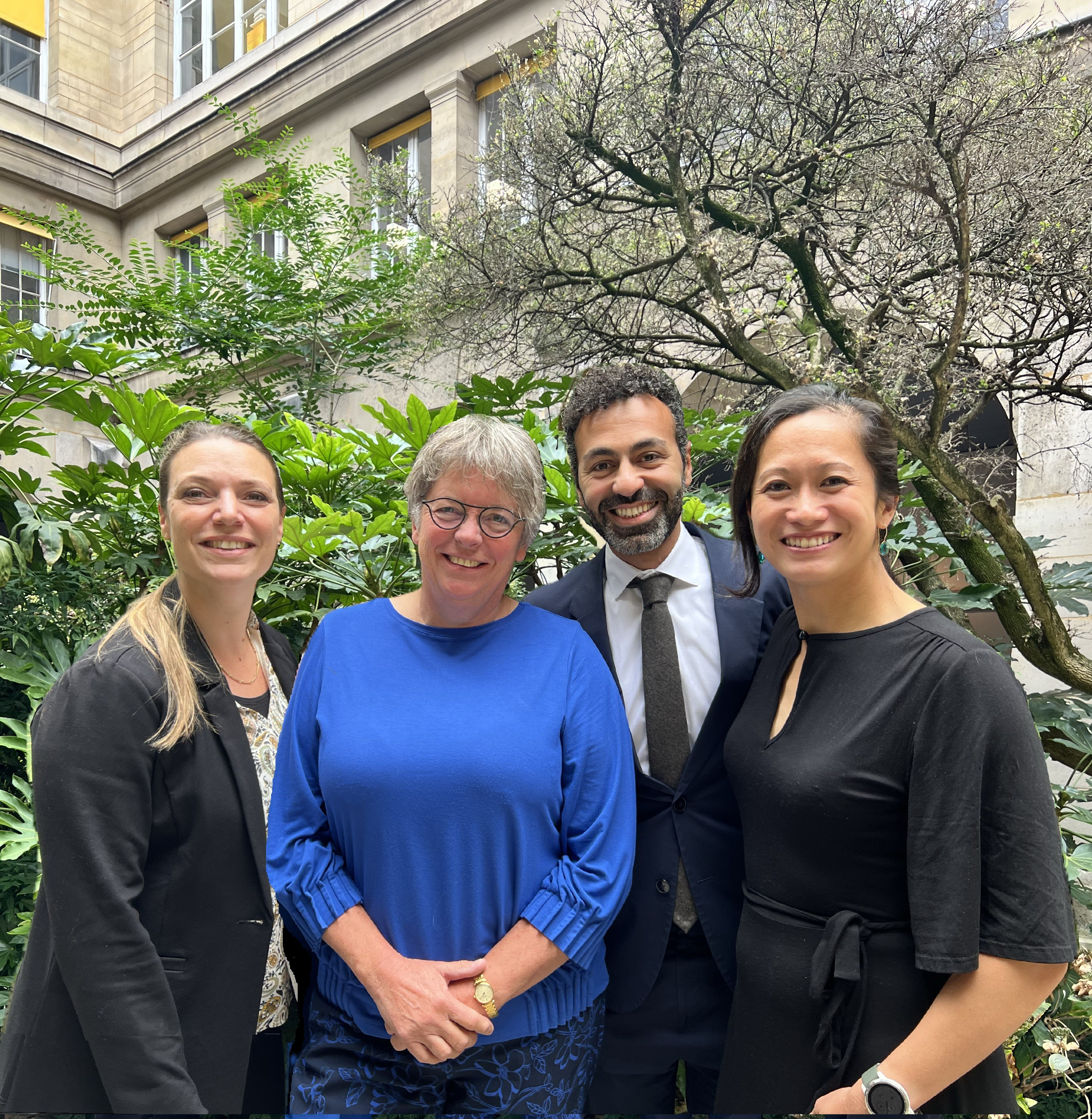
EPOS board
- G. Darius Hildebrand, FRCS FRCOphth, FEBO, Cantonal Hospital St. Gallen, President
- Erika Maka, MD, Semmelweis University, Secretary
- Christina Gerth-Kahlert, MD, University Hospital Zürich, Treasurer
- Catherine Cassiman, MD, UZ Leuven
- Manca Tekavcic Pompe, MD, PhD, University Eye Clinic, Ljubljana, Slovenia
- Asimina Mataftsi, MD, PhD, MRCOphth, Aristotle University of Thessaloniki
- Matthieu P. Robert, MD, PhD, Necker-Enfants Malades University Hospital
Two-day Programme
The two-day programme offers a rich mix of keynote lectures, abstract presentations, and ample opportunities for networking and collaboration.
This annual meeting is an abstract-based meeting with different scientific sessions and subjects. Every session will include keynote lectures by international experts, free papers, and rapid fire presentations on the main topic and other areas of paediatric ophthalmology. Ample time will be provided for discussion within plenary sessions and around posters. Abstracts for oral and poster presentations can be submitted on all topics in paediatric ophthalmology, but are preferably related to one of the session themes. After review, selected authors will be invited to present their abstracts during the congress on 10 – 11 October 2025 in Leiden, the Netherlands.
Programme at a glance
Thursday, 9 October 2025
Time Programme
18:00 - 20:00 Registration & welcome reception
Friday, 10 October 2025
Time Programme
08:00 - 08:30 Registration
08:30 - 08:45 Opening ceremony
08:45 - 10:30 Team- and network with the geneticist (metabolic, genetics, syndrome, retina)
10:30 - 11:15 Coffee break, posterviewing & exhibition
11:15 - 12:30 Team- and network for children with craniofacial or orbital diseases
12:30 - 13:45 Lunch, posterviewing & exhibition
13:45 - 15:00 Golden jubilee session: Lectures of Lifetime Achievement Award Recipients
15:00 - 15:45 Coffee break, moderated poster session & exhibition
15:45 - 16:40 Team- and network with neurology (paediatric brain tumors)
16:40 - 17:35 Team- and network for allergic and inflammatory disorders (allergology, immunology
rheumatology)
17:35 - 18:00 Concluding Remarks / End of first day scientific programme
19:00 - 23:00 Golden jubilee gala dinner (upon registration)
Saturday, 11 October 2025
Time Programme
08:00 - 08:30 Registration
08:15 - 10:20 Team- and network with neonatology & panel discussion 'The best way to treat and follow up on ROP'
10:20 - 11:05 Coffee break, moderated poster session & exhibition
11:05 - 12:30 Team- and network in rehabilitation for the visually impaired
12:30 - 13:00 Assembly of EPOS Members
13:00 - 14:00 Lunch, poster viewing & exhibition
14:00 - 15:10 Paediatric ophthalmolgy never works Eye-lone (teamwork with other subspecialists
Ophthalmolgy - surgery)
15:10 - 15:45 Coffee break, poster viewing & exhibition
15:45 - 16:45 Team- and network for diagnostics (from imaging to diagnosis)
16:45 - 17:00 Award and closing ceremony
Keynote speakers
Angela Arends-Tjiam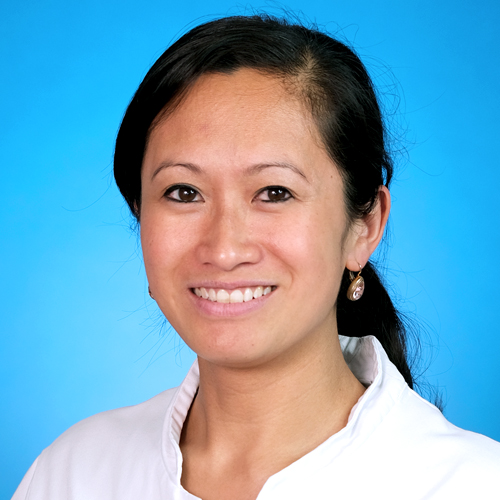
Paediatric ophthalmologist, Erasmus MC – Sophia Children’s Hospital, Rotterdam, the Netherlands
Angela Arends-Tjiam is an ophthalmologist specialized in pediatric ophthalmology and strabismus, with a keen interest in research on retinopathy of prematurity.
Angela Arends-Tjiam works within the multidisciplinary vascular expertise center Erasmus MC – Sophia Children’s Hospital (in Dutch so called: WEVAR-team). Within this team Angela is overseeing the ophthalmic part of children with vascular tumors and anomalies in the orbit.
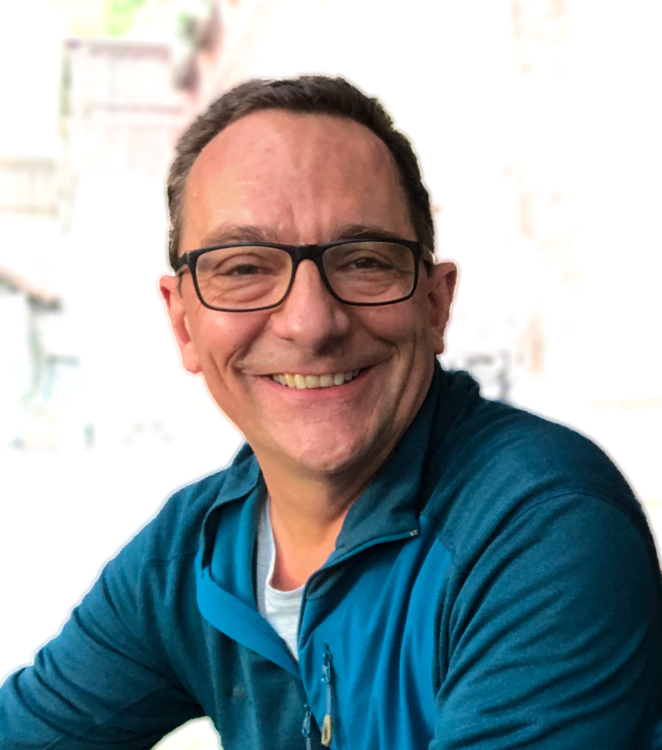
Thomas Becher
Pediatric neurologist, Sana Krankenhaus, Düsseldorf Gerresheim, Germany and
Deutsche Gesellschaft für Sozialpädiatrie und Jugendmedizin, Berlin, Germany
Degree in medicine and special education University of Cologne
Specialist in pediatrics and adolescent medicine, child neurology
2005 Pediatric Neurology Center Sana (KNZ) Clinics Düsseldorf, 2008 Senior physician
o 2009 Head of the Department Movement Disorders and Cerebral Palsy
o 2023 Chief physician in a collegial system
Head of the “Seh-Lotsen (SLS)” working group in social pediatric centers (SPZ) in the central quality group of the Deutsche Gesellschaft für Sozialpädiatrie und Jugendmedizin (DGSPJ)
Scientific expert advisor in the consortium project SLS: Development of a training course for interprofessional counselling and research at the interface of health care and education in social pediatric centres in Germany. Bochum University of Applied Sciences, DGSPJ & Klinikum Dortmund gGmbH. 2024-2026, funded by the Federal Ministry of Education and Research of Germany.
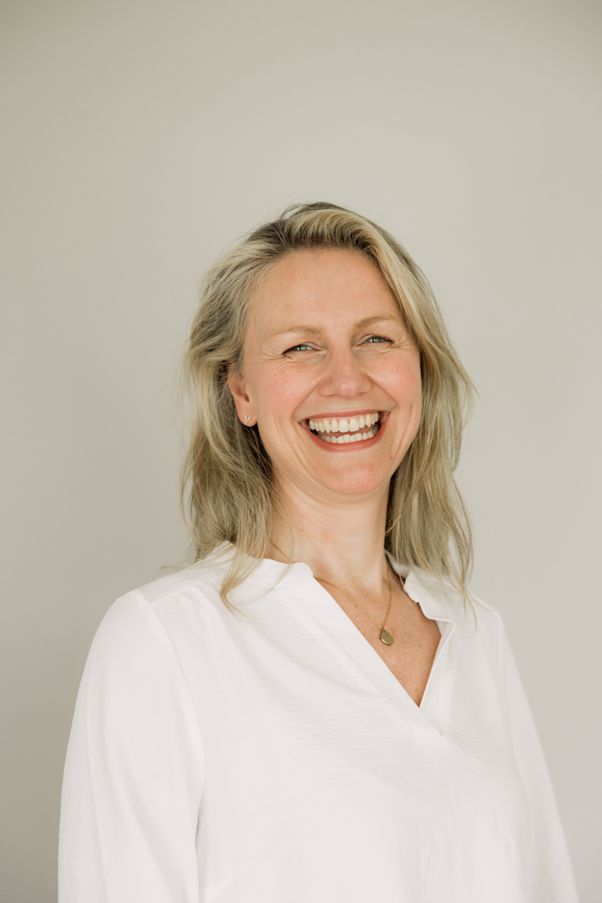
Carlien Bennebroek
Paediatric ophthalmologist, Amsterdam UMC, the Netherlands.
Drs. Bennebroek is a pediatric ophthalmologist and strabismus specialist in the department of ophthalmology at Amsterdam UMC. In July 2025 she defended her thesis: Treatment evaluation and determination of prognostic factors in pediatric optic pathway glioma.
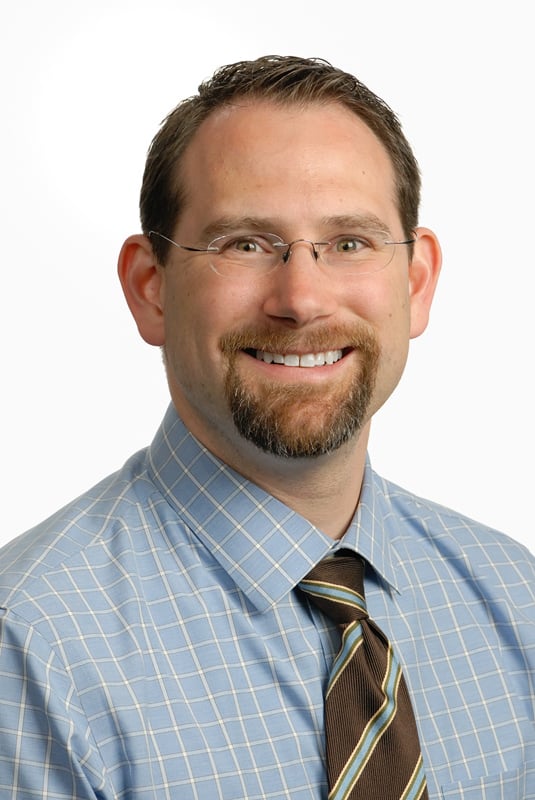
Michael Blair
Ophthalmologist, retina surgeon, Retina Consultants Ltd and University of Chicago, Chicago, United States
Dr. Blair earned his undergraduate degree at Harvard University and medical doctorate at the University of Chicago. He completed his ophthalmology residency at the Wilmer Eye Institute and his Vitreoretinal surgery fellowship at the University of Illinois Eye Infirmary.
His clinical interests include pediatric retina including retinopathy of prematurity, diabetic retinopathy, macular degeneration, retinal vascular disease, complex retinal detachment repair, and ocular tumors. He has authored over 100 articles in the medical literature.
He is actively involved in teaching and training ROP care to retina fellows from several institutions across Chicagoland and working to expand ROP care around the globe.
Camiel Boon
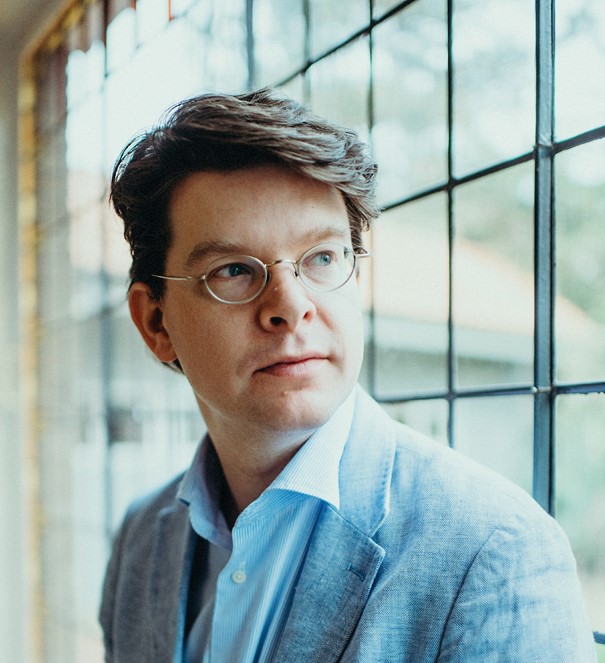 Camiel Boon, MD, PhD, FEBO, is a Consultant Ophthalmologist at Amsterdam University Medical Center, and Leiden University Medical Center (the Netherlands). Already at the age of 36, he was appointed Full Professor of Ophthalmology, with a special appointment for Clinical Ophthalmogenetics, at the University of Amsterdam. At the age of 39, he was also appointed Full Professor of Ophthalmology at Leiden University. Clinically, Prof. Boon is specialized in medical retina, vitreoretinal surgery, and hereditary retinal diseases. Scientifically, Prof. Boon’s research group focuses on clinical and genetic characteristics of hereditary retinal diseases, and the development of innovative treatments such as gene therapy. In addition, his research group is renowned for ground-breaking research on central serous chorioretinopathy, and age-related macular degeneration. He has extensive experience as initiator and principal investigator in a range of pioneering clinical trials. He has published more than 280 peer-reviewed articles on the aforementioned topics, and is editor/co-author on chapters in a range of atlases.
Camiel Boon, MD, PhD, FEBO, is a Consultant Ophthalmologist at Amsterdam University Medical Center, and Leiden University Medical Center (the Netherlands). Already at the age of 36, he was appointed Full Professor of Ophthalmology, with a special appointment for Clinical Ophthalmogenetics, at the University of Amsterdam. At the age of 39, he was also appointed Full Professor of Ophthalmology at Leiden University. Clinically, Prof. Boon is specialized in medical retina, vitreoretinal surgery, and hereditary retinal diseases. Scientifically, Prof. Boon’s research group focuses on clinical and genetic characteristics of hereditary retinal diseases, and the development of innovative treatments such as gene therapy. In addition, his research group is renowned for ground-breaking research on central serous chorioretinopathy, and age-related macular degeneration. He has extensive experience as initiator and principal investigator in a range of pioneering clinical trials. He has published more than 280 peer-reviewed articles on the aforementioned topics, and is editor/co-author on chapters in a range of atlases.
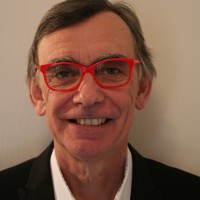
Jean Luc Fauquert
Ocular allergist and paediatrician, Centre Hospitalier Universitaire, Clermont-Ferrand, France
Jean-Luc FAUQUERT is consultant allergist and paediatrician in the university hospital in Clermont-Ferrand, France. He is particularly involved in food allergy in children and ocular allergy. He gained expertise in ocular allergy through the onset of a dual allergy and ophthalmology consultation particularly focused on severe allergic conjunctivitis. Through the onset and spread out of expert group on ocular allergy in France (Groupe Ophtalmo Allergo) and Europe (Interest Group on Ocular Allergy (IGOA) he increased recognition of academic authorities.
Peter Campbell
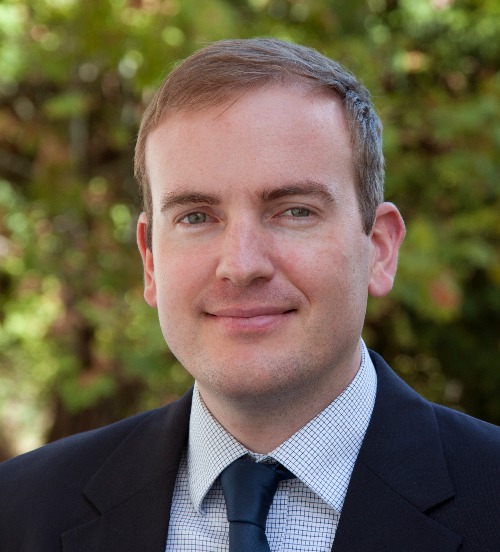 Ophthalmologist, retina surgeon, Oregon Health & Science University, Oregon, Portland, United States
Ophthalmologist, retina surgeon, Oregon Health & Science University, Oregon, Portland, United States
Dr. Campbell is the Edwin and Josephine Knowles Professor of Ophthalmology at the Casey Eye Institute, Oregon Health & Science University. His clinical training and practice is focused on the care of adult and pediatric patients with vitreoretinal diseases. In addition, he is a translational clinician scientist primarily focused on two main research areas: the development of artificial intelligence (AI) algorithms in retinopathy of prematurity (ROP) with the Imaging and Informatics in ROP (i-ROP) research consortium, and optical coherence tomography (OCT) for pediatric retina with the Center for Ophthalmic Optics & Lasers [COOL Lab] headed by David Huang, MD at OHSU.
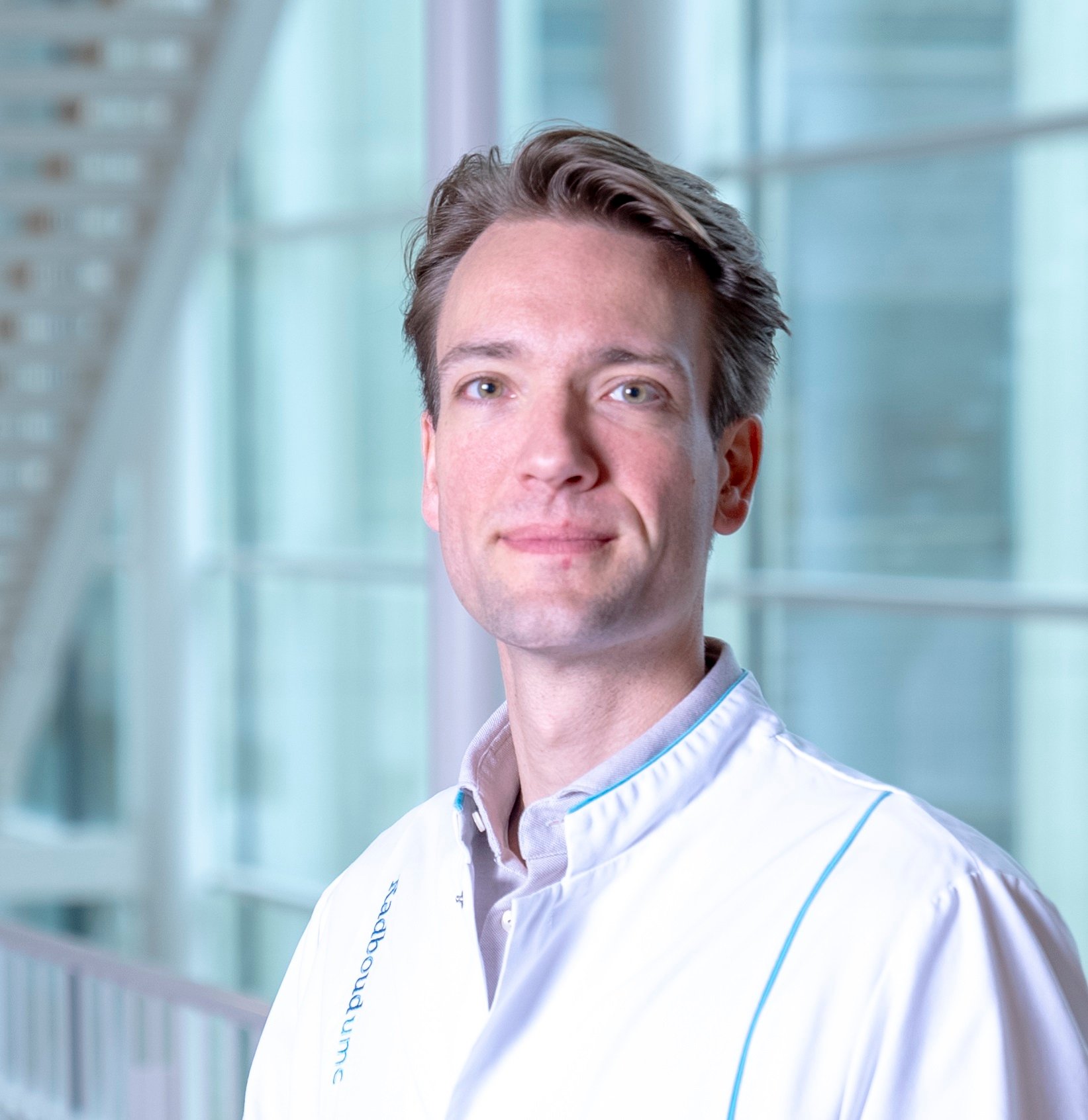 Stefan de Geus, Radboud UMC, Nijmegen, The Netherlands
Stefan de Geus, Radboud UMC, Nijmegen, The Netherlands
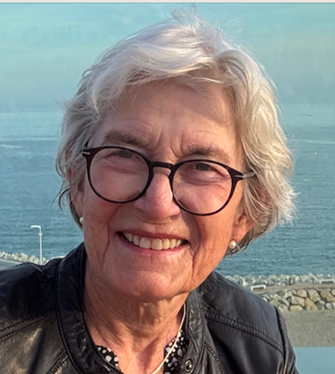
Gerd Holmström, Uppsala university, Sweden
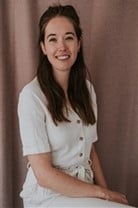
Marinke Hokken
Neuropsychologist, specialized in Cerebral Visual Impairment, Erasmus MC, Koninklijke Visio, Huizen, Utrecht University, Utrecht, The Netherlands
Marinke Hokken is a PhD student at Erasmus MC department of neuroscience and a neuropsychologist at Royal Dutch Visio, specializing in Cerebral Visual Impairment (CVI). Her research focuses on using eye-tracking technology to explore how children with CVI process visual information and why they face challenges, such as finding and recognizing objects. In clinical practice, she works with children and families to identify CVI and provide tailored support. Marinke is also a teacher at the Utrecht University, sharing her expertise in neuropsychology with students.
Creig Hoyt
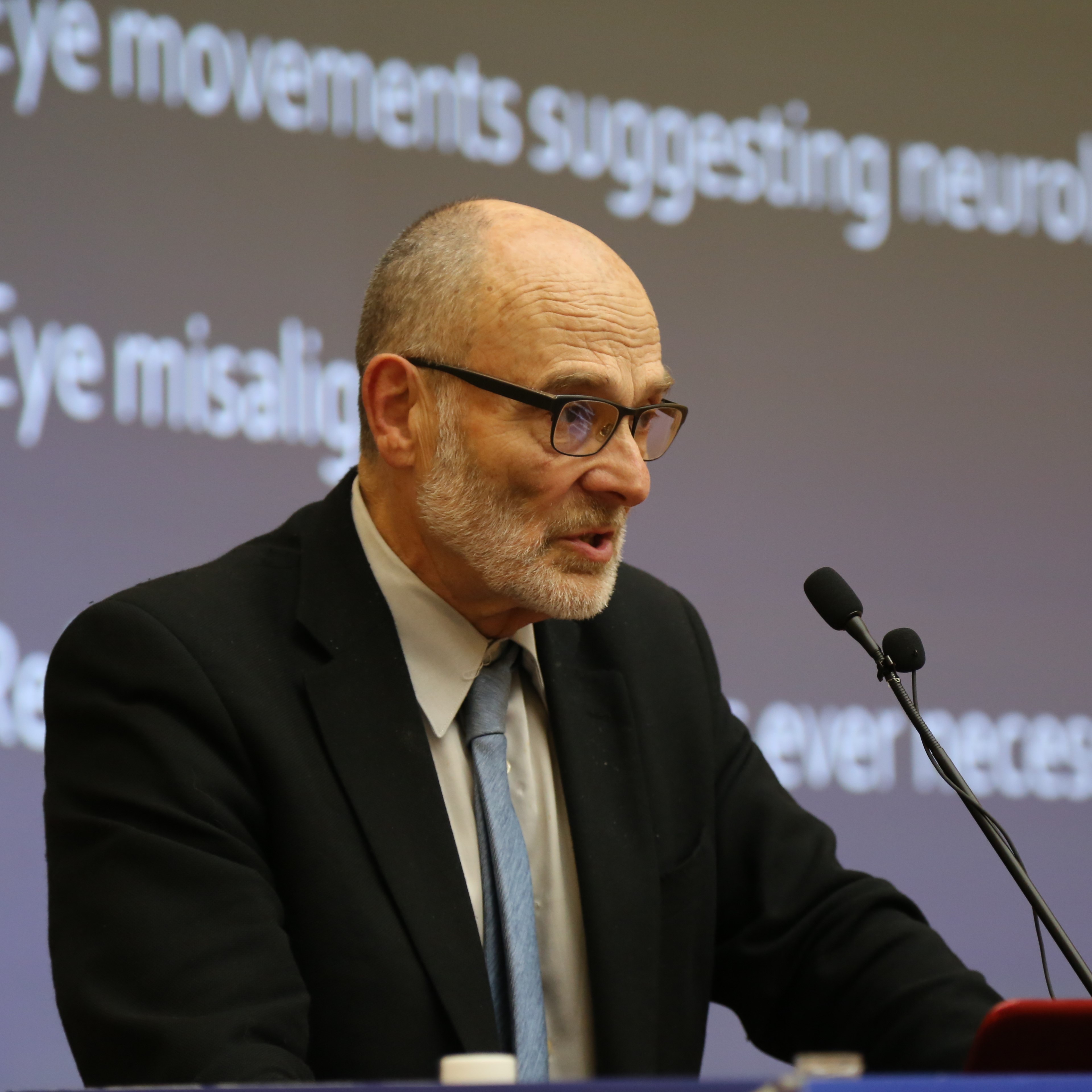 Creig Hoyt is Professor Emeritus and former Chair of the Department of Ophthalmology at the University of California San Francisco. He received his neurology and ophthalmology training at the University of California and completed a pediatric ophthalmology fellowship at the Royal Children’s Hospital in Melbourne, Australia. He and David Taylor are the original editors of the textbook, Pediatric Ophthalmology and Strabismus. Professor Hoyt was the first editor of the British Journal of Ophthalmology who was not a citizen of Great Britain. He has published over 150 papers and delivered 29 named lectures. Although his original research involved early surgery of congenital cataracts his special interest is in pediatric neuro-ophthalmology. In 1984 he was a member of an expedition that kayaked across the Sea of Cortez. He still participates in kayak races.
Creig Hoyt is Professor Emeritus and former Chair of the Department of Ophthalmology at the University of California San Francisco. He received his neurology and ophthalmology training at the University of California and completed a pediatric ophthalmology fellowship at the Royal Children’s Hospital in Melbourne, Australia. He and David Taylor are the original editors of the textbook, Pediatric Ophthalmology and Strabismus. Professor Hoyt was the first editor of the British Journal of Ophthalmology who was not a citizen of Great Britain. He has published over 150 papers and delivered 29 named lectures. Although his original research involved early surgery of congenital cataracts his special interest is in pediatric neuro-ophthalmology. In 1984 he was a member of an expedition that kayaked across the Sea of Cortez. He still participates in kayak races.
Peng Khaw
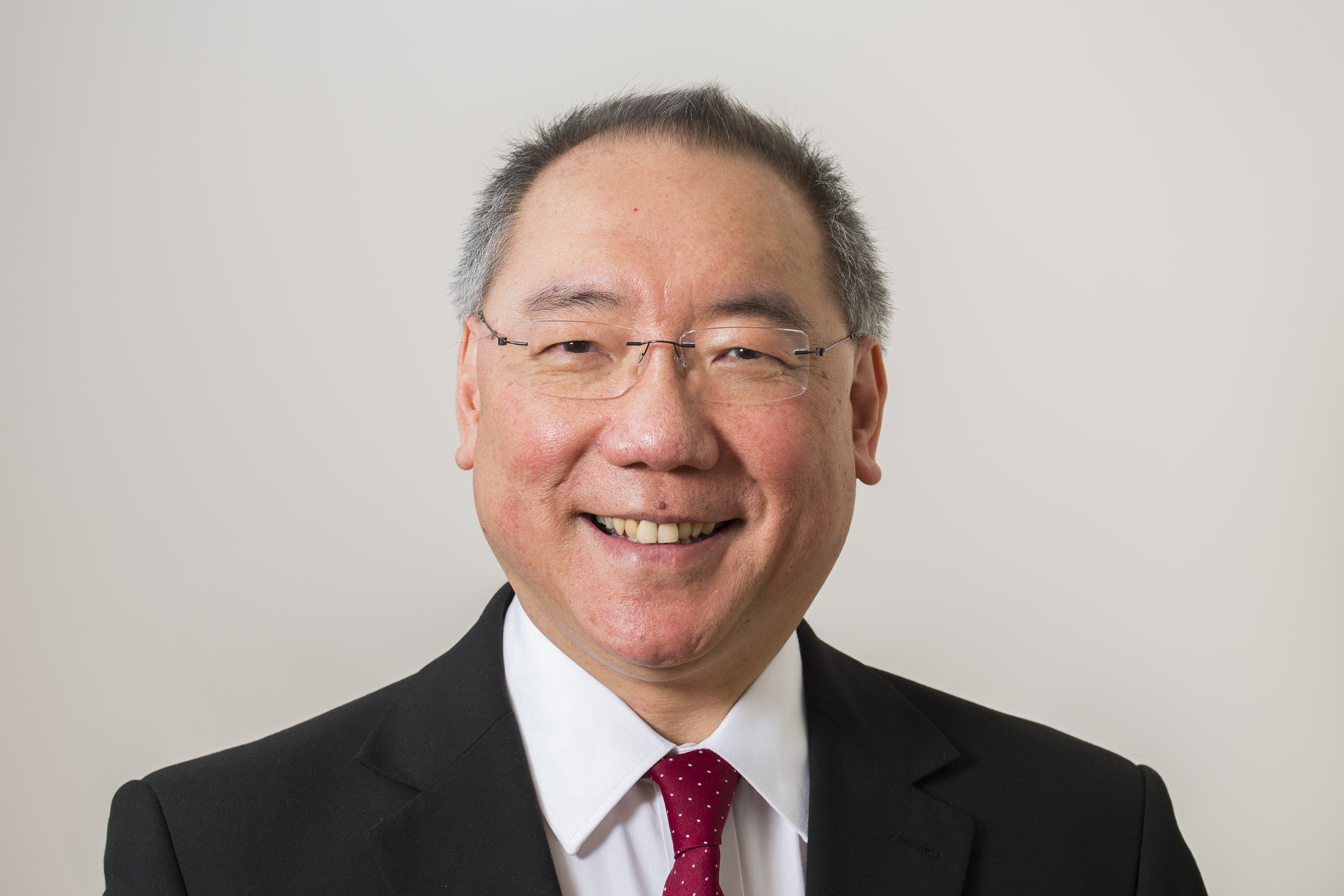 Professor Sir Peng Tee Khaw is Professor of Glaucoma and Wound Healing at UCL Institute of Ophthalmology, and Consultant Ophthalmic Surgeon at Moorfields Eye Hospital, London. His special interest is the surgical treatment of glaucoma in children and young adults. His group have developed and refined surgical techniques (Moorfields Safer Surgery System) and inexpensive single 3-minute treatments to prevent scarring, increasing surgical efficacy and safety worldwide. They proposed the 10-10-10 goal for surgery (10mmHg pressure lasting 10 years and taking 10 minutes) and are helping develop microdevices, anti-scarring systems, and have co-discovered a novel stem cell (Moorfields-IO Müller stem cell), being developed for optic nerve regeneration. He initiated the eye and vision component of UK Biobank with Professor Paul Foster and facilitated the AI collaboration with Google Deep Mind with Professor Pearse Keane.
Professor Sir Peng Tee Khaw is Professor of Glaucoma and Wound Healing at UCL Institute of Ophthalmology, and Consultant Ophthalmic Surgeon at Moorfields Eye Hospital, London. His special interest is the surgical treatment of glaucoma in children and young adults. His group have developed and refined surgical techniques (Moorfields Safer Surgery System) and inexpensive single 3-minute treatments to prevent scarring, increasing surgical efficacy and safety worldwide. They proposed the 10-10-10 goal for surgery (10mmHg pressure lasting 10 years and taking 10 minutes) and are helping develop microdevices, anti-scarring systems, and have co-discovered a novel stem cell (Moorfields-IO Müller stem cell), being developed for optic nerve regeneration. He initiated the eye and vision component of UK Biobank with Professor Paul Foster and facilitated the AI collaboration with Google Deep Mind with Professor Pearse Keane.
Sir Peng has delivered over 50 named lectures, won over 20 international awards and medals, published 600+ papers, chapters and books and is the second highest cited ophthalmologist in the UK. He was the first UK President of the Association for Research in Vision and Ophthalmology (USA). He has raised grants of over $150 million and was the main fundraiser for the Richard Desmond Children’s Eye Centre which is the world’s largest children’s eye centre. He is founder Director of the UK NIHR Moorfields UCL Biomedical Research Centre in Ophthalmology with four five-year renewals. He was elected to the UK Academy of Medical Sciences (2002), NIHR Senior Investigator (2009) and knighted in the Queen’s Birthday Honours (2013). In 2023, he was an inaugural member of The Ophthalmologist Hall of Fame. He passionately believes that scientific research will enable new and better treatments to change lives for the better.
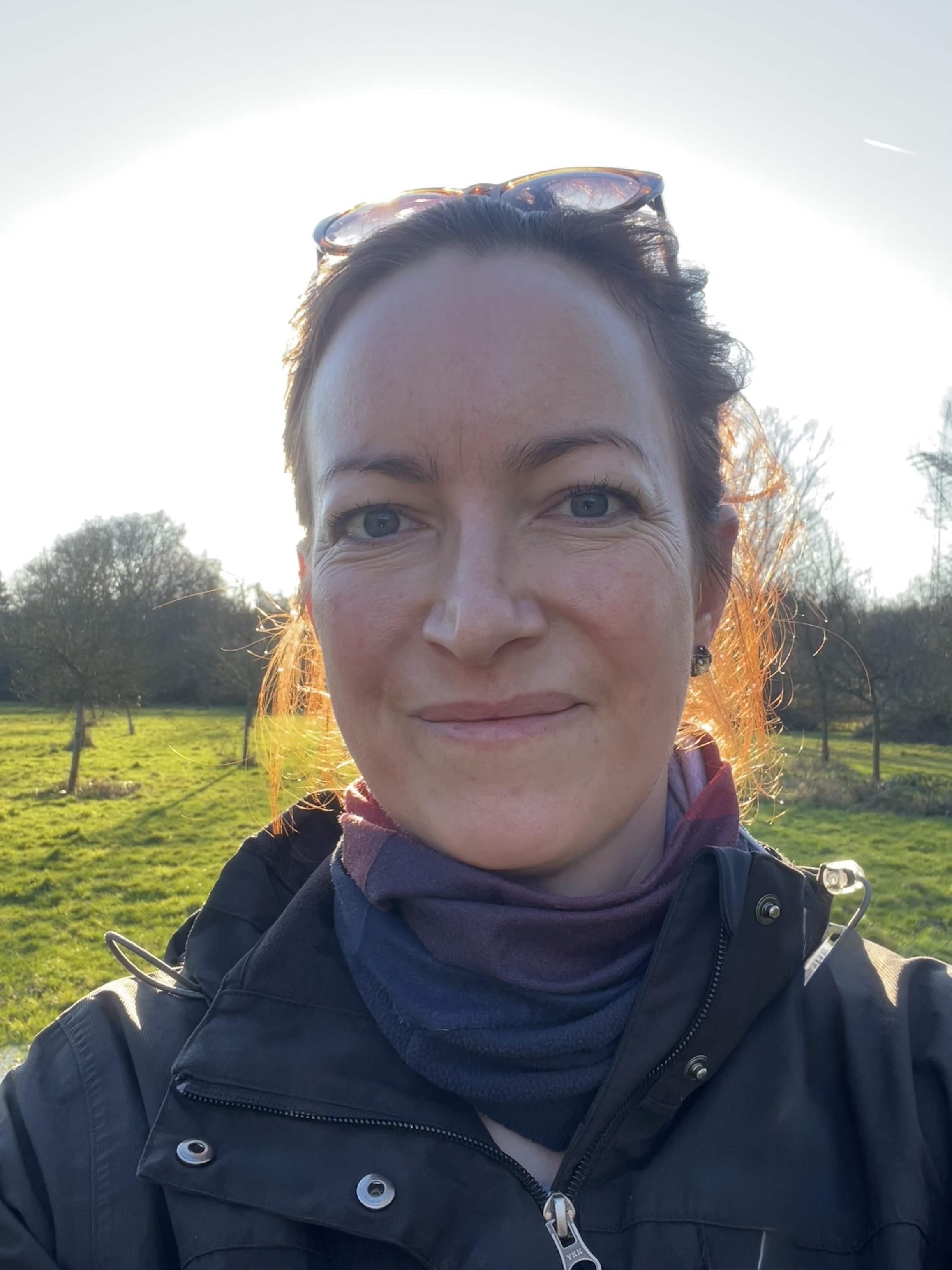 Verena Kerkmann
Verena Kerkmann
Rehabilitation educationist, Bochum University, Bochum, Germany and
Klinikum Dortmund gGmbH, Dortmund, Germany
Professorship for Rehabilitation Sciences at Bochum University of Applied Sciences. Key area: Children and youth with visual impairment. Funded by Waldtraut und Sieglinde Hildebrandt-Stiftung.
Head of the the German-wide first “Seh-Lotsen-Sprechstunde (SLS)” at Klinikum Dortmund gGmbH
Leading the consortium project SLS: Development of a training course for interprofessional counselling and research at the interface of health care and education in social pediatric centres in Germany. Bochum University of Applied Sciences, Deutsche Gesellschaft für Sozialpädiatrie und Jugendmedizin (DGSPJ) & Klinikum Dortmund gGmbH. 2024-2026, funded by the Federal Ministry of Education and Research of Germany.

Marlou Kooiker
Researcher and pediatric (neuro)psychologist, Erasmus MC, Rotterdam and
Koninklijke visio, Huizen
As a postdoc researcher and pediatric (neuro)psychologist, I’m working with children with visual impairments and their families. Both from a research and clinical perspective, I focus on early screening, diagnostics and rehabilitation strategies of Cerebral Visual Impairment. Another important focus is on providing support in living with a visual impairment for children, their families and broader network.
Sjoukje Loudon
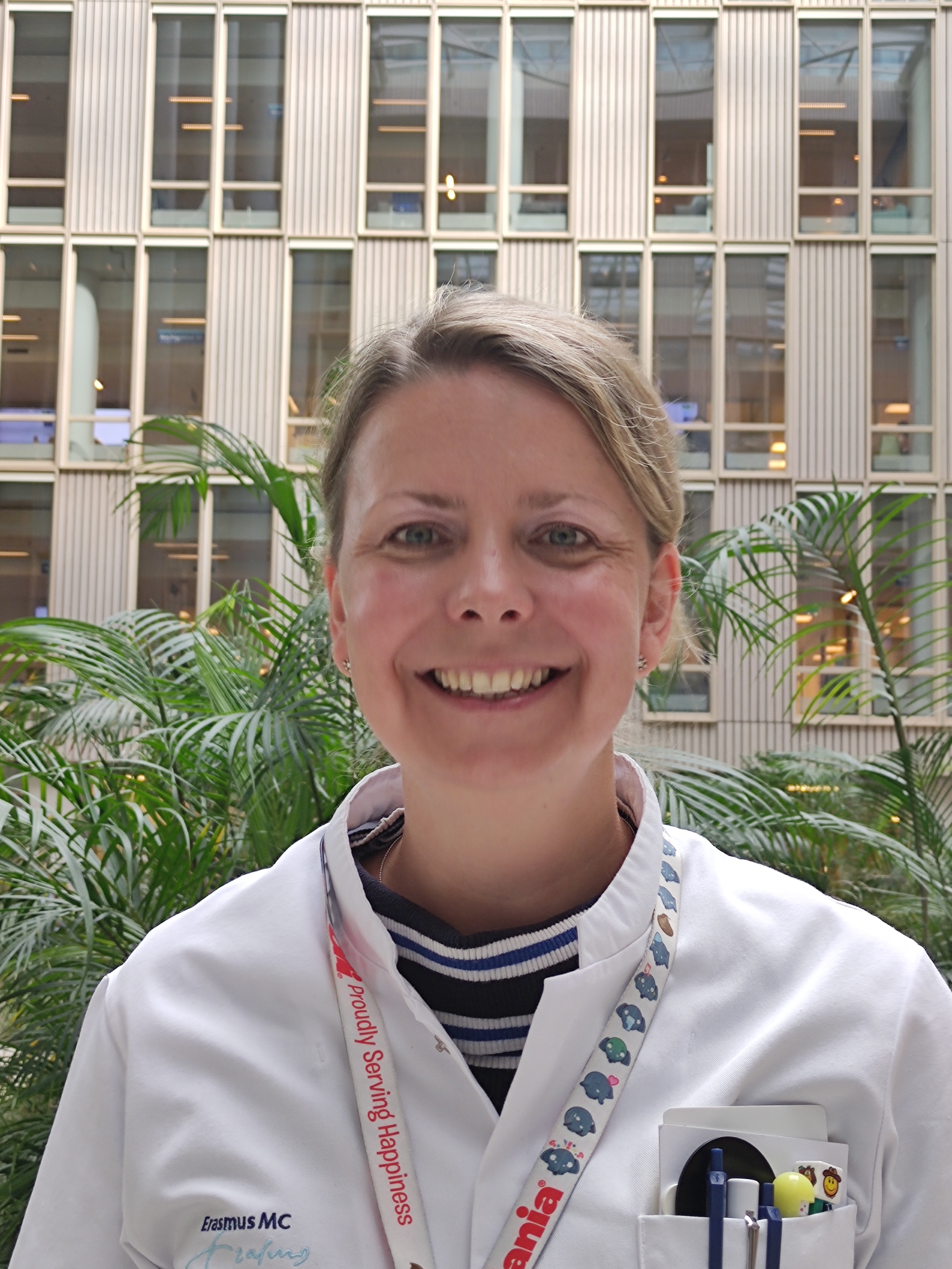 Paediatric ophthalmologist, Erasmus MC University Medical Center, Rotterdam, the Netherlands and Sophia Children’s Hospital, Rotterdam, the Netherlands
Paediatric ophthalmologist, Erasmus MC University Medical Center, Rotterdam, the Netherlands and Sophia Children’s Hospital, Rotterdam, the Netherlands
Dr. Sjoukje Loudon is an ophthalmologist at Erasmus MC Sophia, specializing in pediatric ophthalmology and strabismus. She pursued a fellowship in pediatric ophthalmology and strabismus at Moorfields Eye Hospital in London. Her research focuses on amblyopia and complex strabismus. She has contributed significantly to the field with numerous publications and is dedicated to improving the visual health of children.
Sophie Marlowe
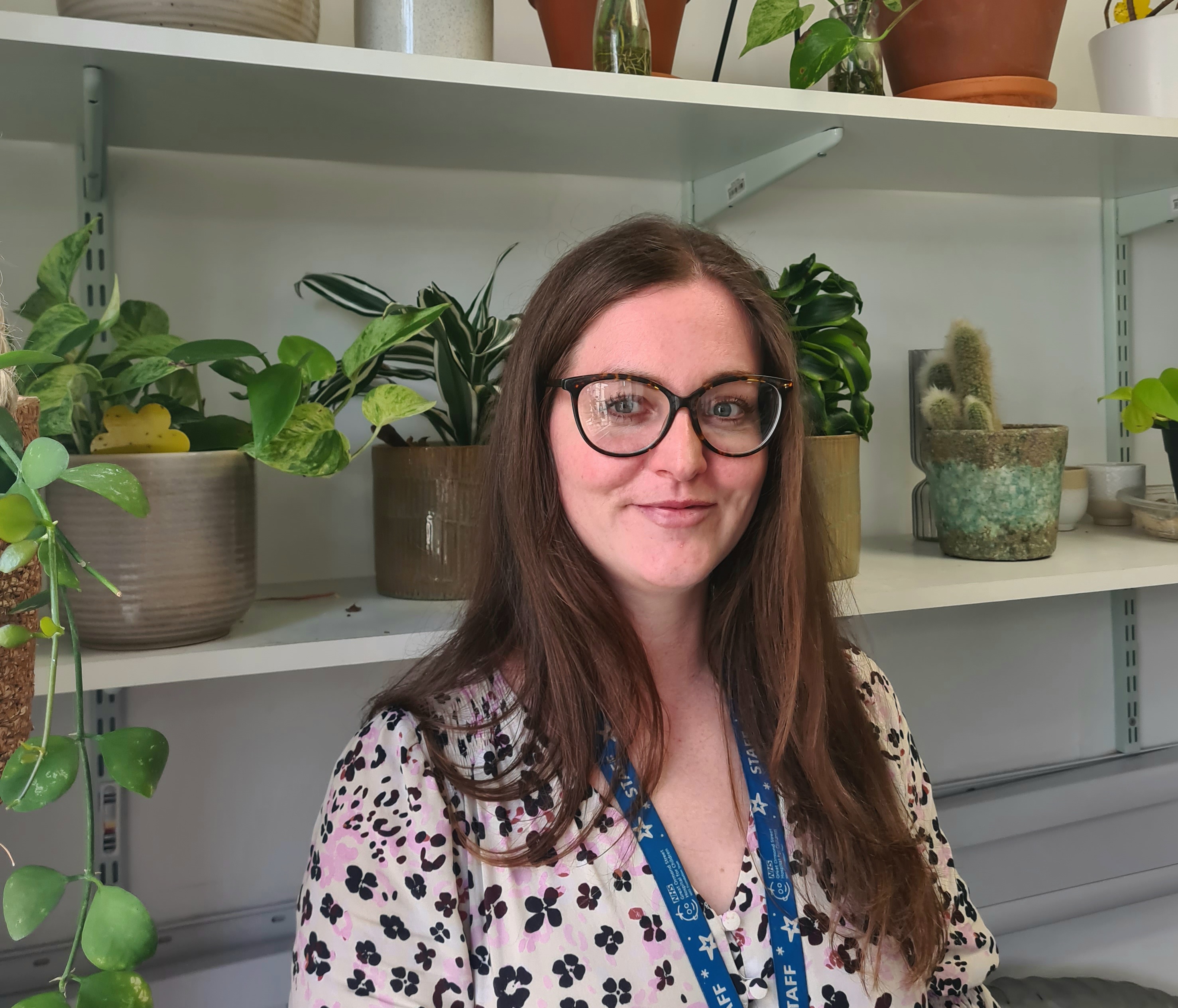 Genetic counsellor, Great Ormond Street Hospital NHS Foundation Trust, London, United Kingdom
Genetic counsellor, Great Ormond Street Hospital NHS Foundation Trust, London, United Kingdom
Sophie has been working as a registered ophthalmic genetic counsellor at GOSH for nearly two years and is passionate about delivering fully-integrated pre- and post-test genetic counselling for children and their families with suspected ophthalmic genetic disorders. Prior to qualifying as a genetic counsellor, Sophie worked at the Oxford Eye Hospital Clinical Trials Unit in coordinating clinical research studies for patients with inherited retinal and other ophthalmic disorders.
João Pedro Marques
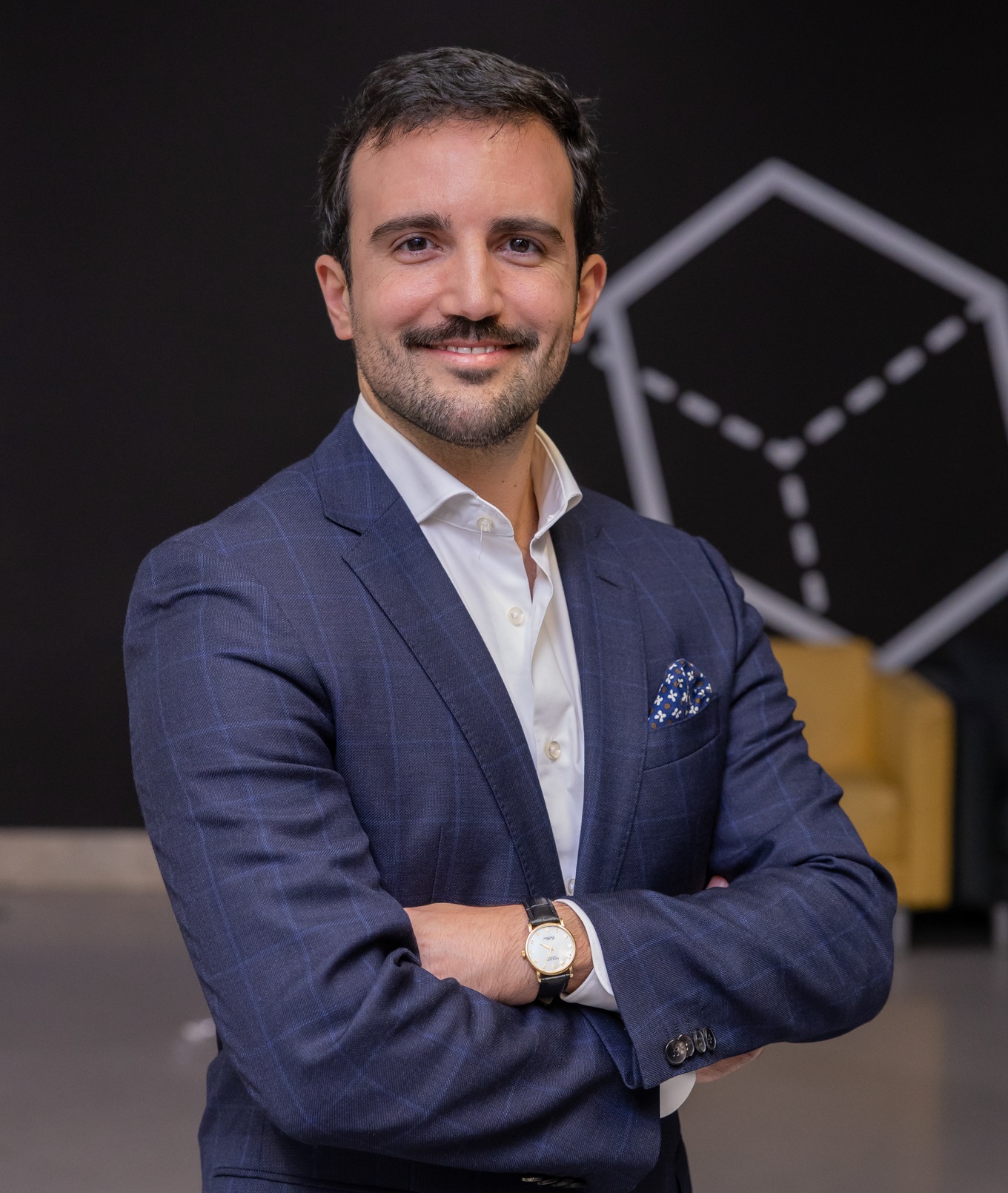
Ophthalmic geneticist and retina Consultant, Unidade Local de Saúde de Coimbra, Coimbra, Portugal
João Pedro Marques is an Invited Assistant Professor of Ophthalmology at the Faculty of Medicine,University of Coimbra (FMUC) and an Ophthalmic Genetics and Retina Consultant at the Coimbra University Hospital. His PhD in Ophthalmic Genetics (FMUC) earned him the highest distinction (cum laude) and was later internationally recognized by the World Health Summit Academic Alliance with the 2nd place in the 2023 M8 Alliance Best PhD Thesis Award. He has published over 100 scientific papers in peer-reviewed journals and won several national and international awards and research grants, including the prestigious EURETINA Retinal Medicine Clinical Research Award in 2023.
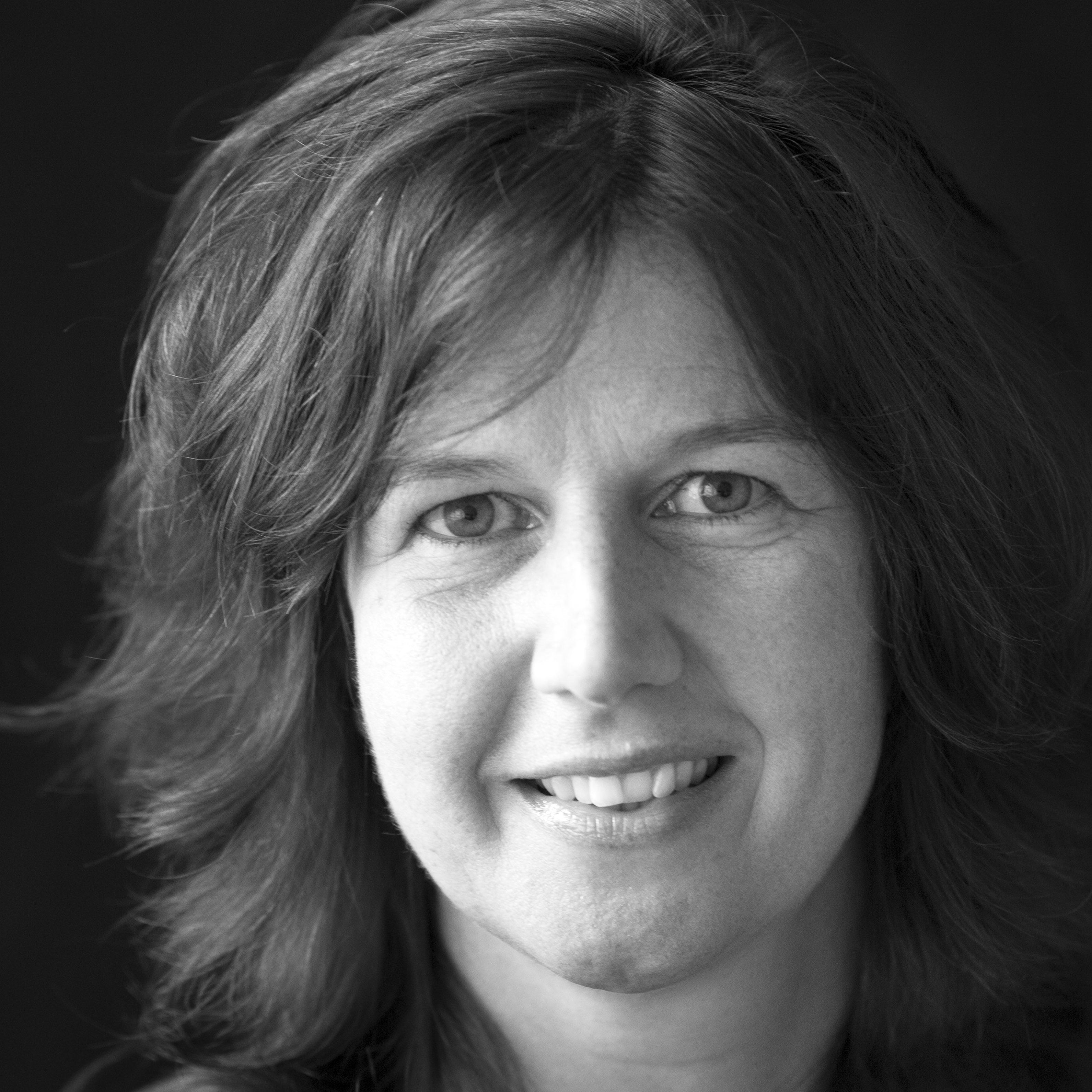
Irene Mathijssen
Plastic surgeon, Erasmus MC University Medical Cente, Rotterdam, the Netherlands and Sophia Children’s Hospital, Rotterdam, the Netherlands
Professor Irene Mathijssen, MD, PhD, MBA-H, is a leading craniofacial surgeon at Erasmus MC Sophia. She specializes in craniofacial disorders, with extensive research on brain anomalies and genetic causes. Mathijssen is also the Secretary-Treasurer of the International Society of Craniofacial Surgery and coordinates the European Reference Network CRANIO. Her work has earned her numerous awards and grants, significantly advancing craniofacial care and research.
Sandra van der Meijden
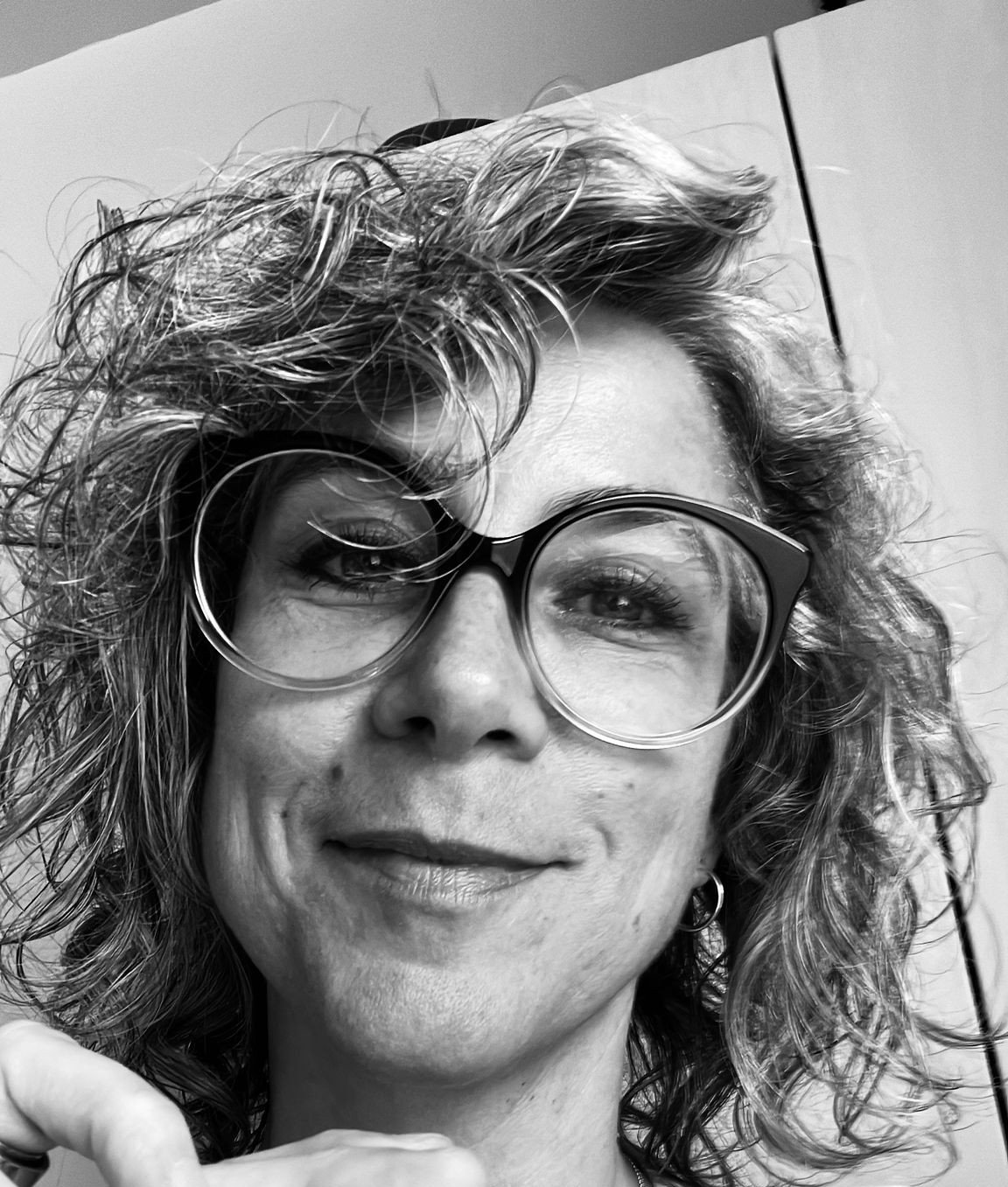 Royal Dutch Visio, Amsterdam, the Netherlands
Royal Dutch Visio, Amsterdam, the Netherlands
Sandra van der Meijden studied social pedagogy, linguistics, child and family studies and health care psychology. She worked in child and youth psychiatry for 20 years as therapist and trainer, with autism as a special interest. Eight years ago, she started working at Royal Dutch Visio, centre of expertise for blind and partially sighted people in the Netherlands. Next to psychological diagnosis and treatment (CBT, EMDR, ACT), Sandra works as a supervisor and workplace trainer for health care psychologists and as an expert and trainer in relations, intimacy and sexuality of visually impaired people.
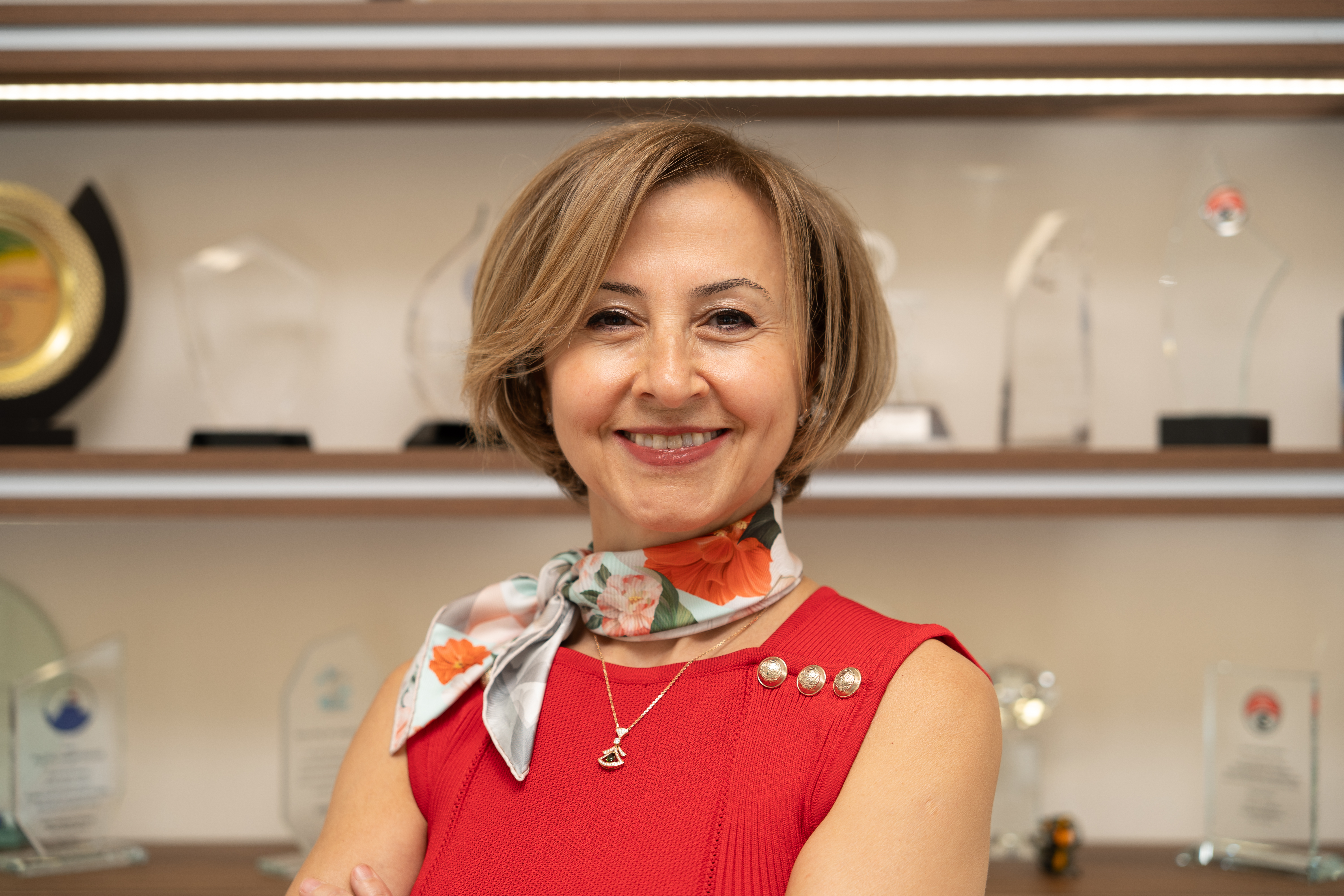
Şengül Özdek
Ophthalmologist, Retina surgeon, Gazi University, School of Medicine, Gazi University, Ankara, Turkey
Prof. Dr. Şengül Özdek was born in 1971 in Turkey. She had her medical education in Hacettepe University and her residency in Ophthalmology in Gazi University in Ankara. She is a faculty member in Gazi University Retina division since 1999. She studied in Retina division of Miami University, Bascom Palmer Eye Institute with Prof. Dr. Harry Flynn in 2004. She had been to Beaumont Hospital, Royal Oak, Michigan as a clinical observer in pediatric retina clinic under the supervision of Dr. Trese and Dr. Capone in April 2010. ROP and pediatric vitreoretinal surgery (ROP, PFV, FEVR, Coats) are her primary interests.
She is an examiner in the European Board of Ophthalmology Examinations and became FEBO (Fellow of European Board of Ophthalmology) in 2017. She has been awarded with the “EVRS Ambassador Award” by European Vitreoretinal Society in 2017 and with “Honor Award” by American Society of Retina Specialists in 2018, with “Achievement Award” by American Academy of Ophthalmology in 2020 and with “Senior Honor Award” by American Society of Retina Specialists in 2024. Her vitreoretinal surgical videos were awarded by EVRS, Mediterretina and Turkish Ophthalmology Societies. She has been selected in the Class of 2020-2021 by Retina Hall of Fame. She was awarded with the best presentation award in Vit-Buckle Society in Las Vegas in 2023. Her surgical video has been selected as “Best of Show” by AAO in 2023.
She has more than 290 articles published in international and national journals She is the editor of Pediatric Vitreoretinal Surgery Book by Springer in 2023. She has been invited as a speaker to numerous international and national meetings and as a surgeon in many live surgeries. She is currently the Secretary of European Vitreoretinal Society (EVRS) and president of the ROP commission of Turkish OS and running the international ROP Courses in Turkey.
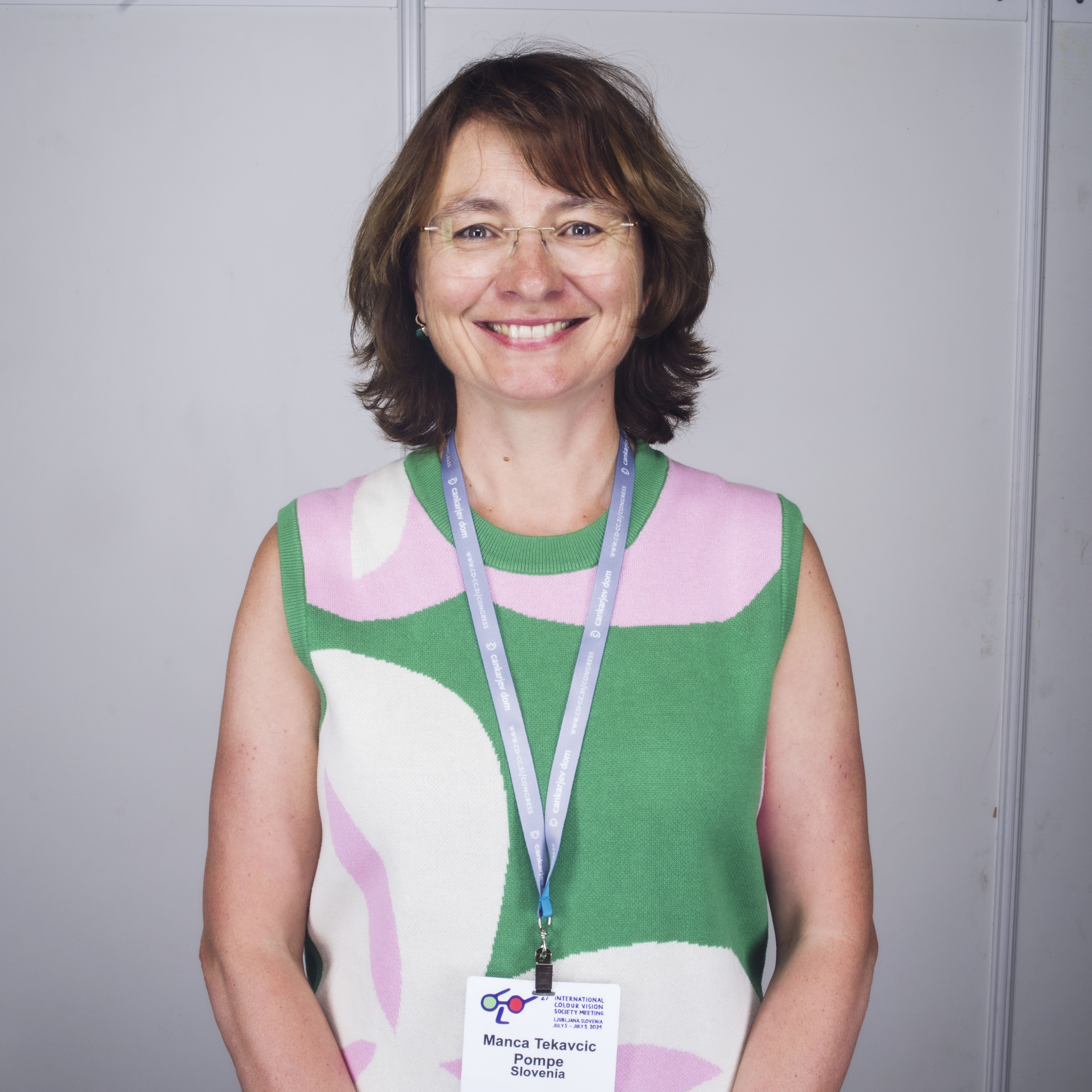
Manca Tekavcic Pompe
Paediatric ophthalmologist, Eye Hospital, UMC Ljubljana, Slovenia
Manca Tekavcic Pompe is a paediatric ophthalmologist from Ljubljana, Slovenia. She is Head of Paediatric Ophthalmology at the Eye Hospital UMC Ljubljana, President of the Slovenian Society of Paediatric Ophthalmology and current President of the Slovenian Society of Ophthalmology. Dr. Tekavcic Pompe is co-chair of the scientific board of the WSPOS (World Society of Pediatric Ophthalmology and Strabismus) and board member of the EPOS (European Paediatric Ophthalmology Society). She is interested in clinical research in the field of paediatric ophthalmology, including anterior segment surgery, paediatric glaucoma, ROP, visual electrophysiology and its clinical application, and colour vision.
Chris Lloyd
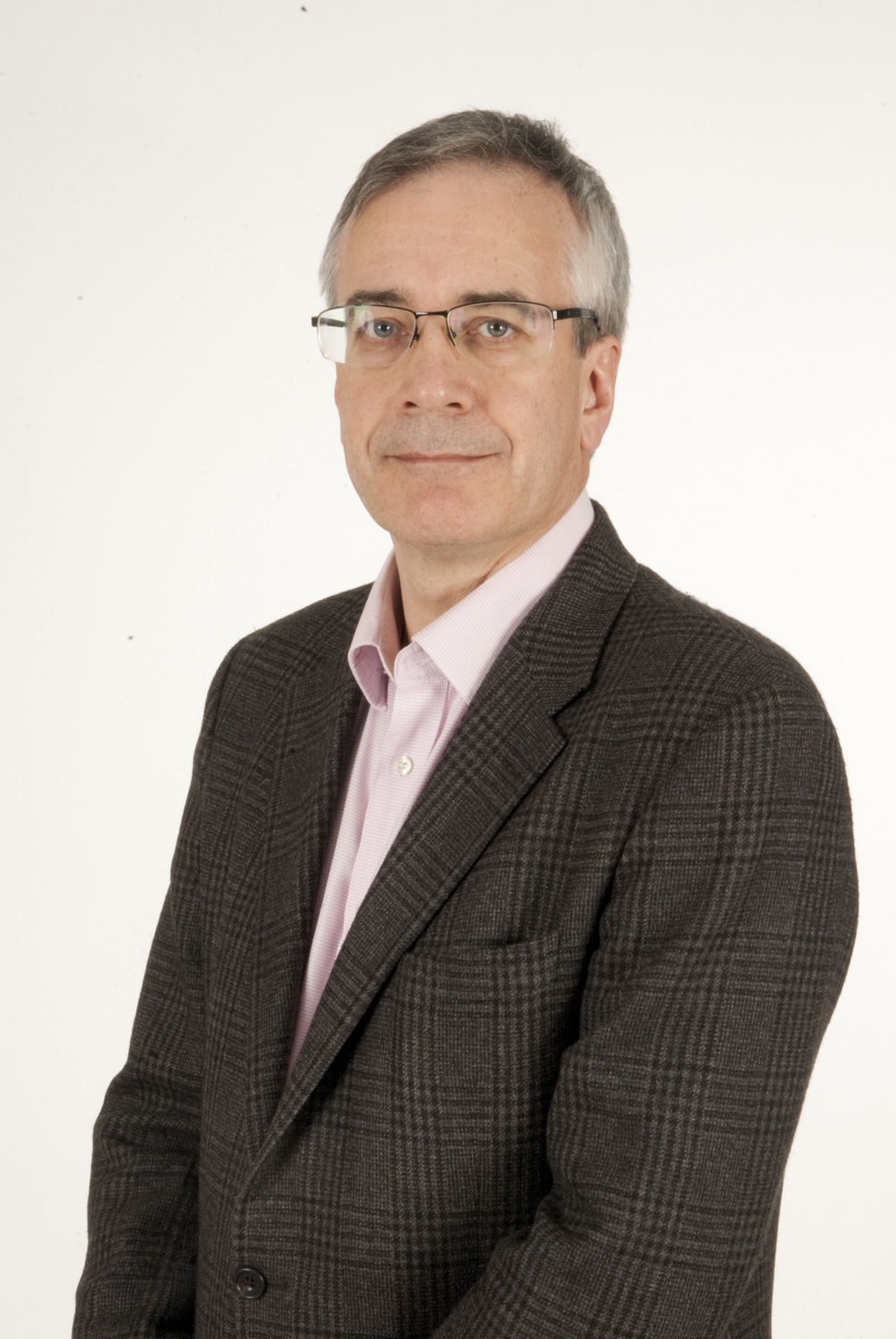 Chris Lloyd is Head of Ophthalmology at Great Ormond Street Hospital in London. He is Senior Lecturer at UCL and Honorary Professor at the University of Manchester. He trained at Barts' Hospital London, Manchester Royal Eye Hospital and Great Ormond Street.
Chris Lloyd is Head of Ophthalmology at Great Ormond Street Hospital in London. He is Senior Lecturer at UCL and Honorary Professor at the University of Manchester. He trained at Barts' Hospital London, Manchester Royal Eye Hospital and Great Ormond Street.
He spent 20 years in Manchester before returning to GOSH in 2016.
He has published over 100 papers, 12 book chapters and a book on paediatric cataract.
Chris was chair of the RCOphth paediatric sub-committee and is President-elect of BIPOSA. He has served on the AAPOS genetic group, the board of EPOS and given many medal lectures and workshops.
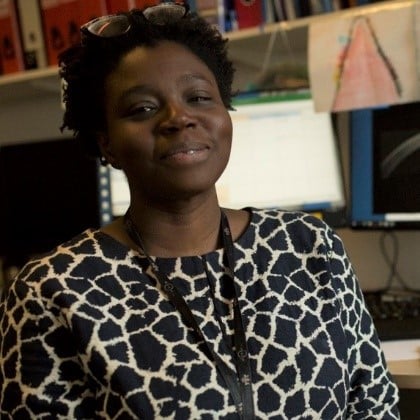
Ameenat Lola Solebo
Paediatric ophthalmologist, UCL GOS Institute of Child Health, London, United Kingdom
Lola is a Wellcome clinician scientist at UCL GOS Institute of Child Health, Consultant Paediatric Ophthalmologist at Great Ormond Street Hospital and Moorfields Eye Hospital, and Clinical Deputy Lead for the Applied Child Health Informatics Theme at the NIHR GOSH Biomedical Research Centre. Her work investigates the determinants of outcome for children with or at risk of blinding disorders, and how best to translate these findings into changes in practice and policy. Her research involves the development of rare disease registries, inception cohorts, ophthalmic imaging biomarkers and the reuse of routinely collected clinical data and health administrative data.
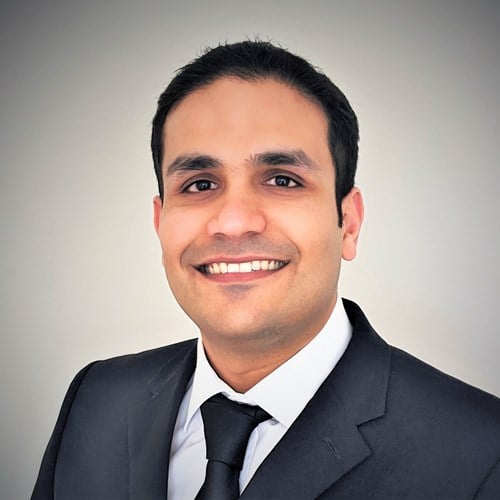
Mervyn Thomas
Ophthalmologist, University of Leicester, Leicester, United Kingdom
Dr Mervyn Thomas is a Clinical Associate Professor, Honorary Consultant Ophthalmologist, and Clinical Lead of the Ulverscroft Eye Unit at the University of Leicester, UK. He leads an interdisciplinary research group spanning genetics, animal models, and multi-centre deep phenotyping. His work on foveal hypoplasia and grading systems is internationally adopted in clinical practice. Dr Thomas has extensively published on foveal developmental disorders and infantile nystagmus. He is dedicated to training the next generation of clinician-scientists, supervising NIHR Academic Clinical Fellows, Clinical Lecturers, orthoptists, and postgraduate students. He serves on the ARVO Advocacy Committee and advises the Nystagmus Network and Global Albinism Alliance.
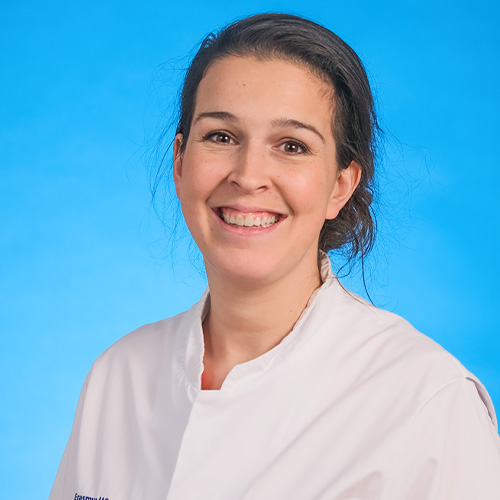
Elyse Verboom
Hemato-oncologist, Erasmus MC – Sophia Children’s Hospital, Rotterdam, the Netherlands
Elyse Verboom is a pediatric hematologist. Her areas of interest are benign hematology, pediatric oncology and last but not least vascular tumors and anomalies.
Elyse Verboom works within the multidisciplinary vascular expertise center Erasmus MC – Sophia Children’s Hospital (in Dutch so called: WEVAR-team). Within this team Elyse is responsible for the systemic treatment of rare vascular tumors and anomalies.
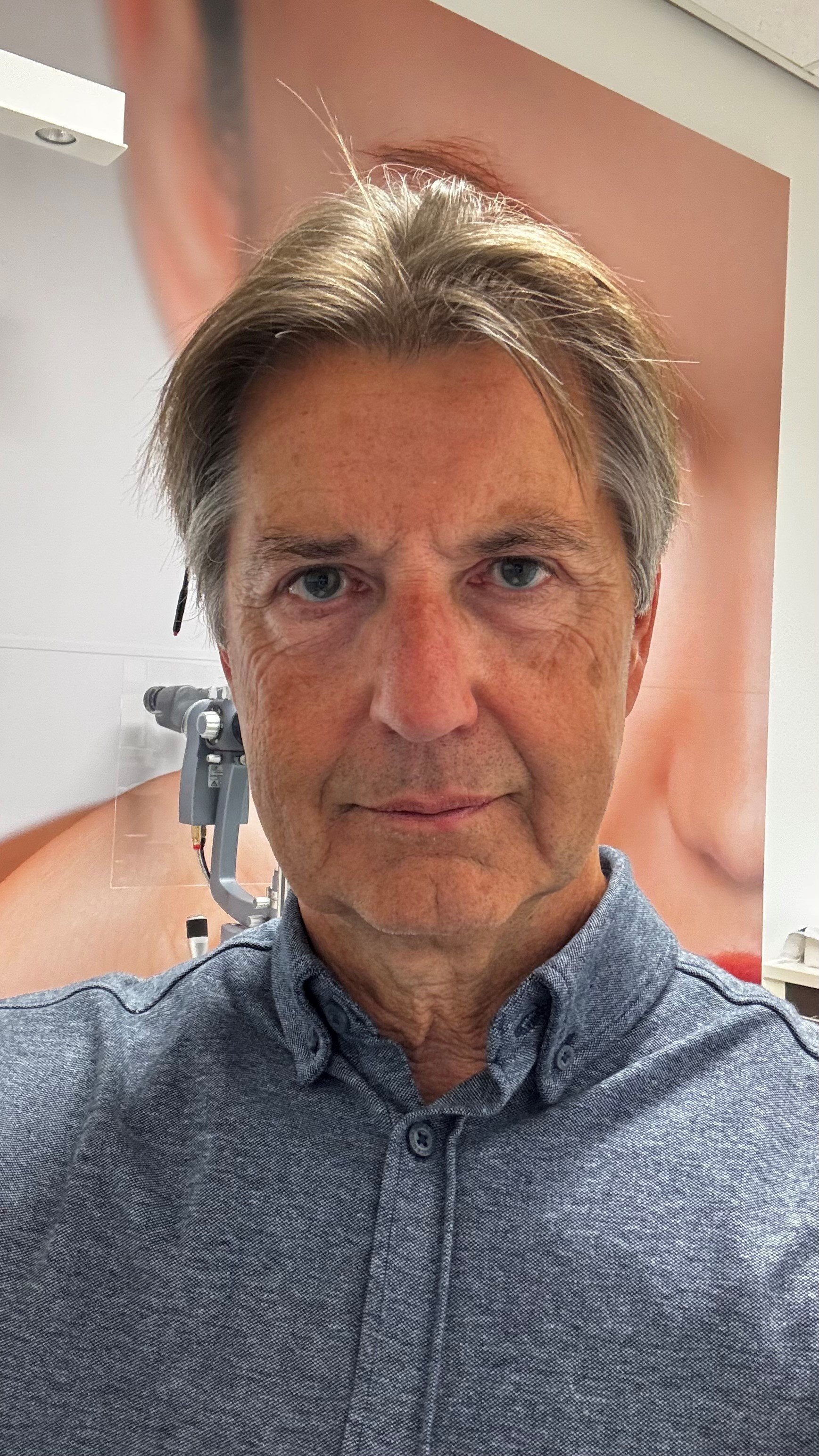
Charles Vervaet
Contact lens specialist, Oculenti Contact lenses, Zoetermeer, the Netherlands
Charles studied Optometry and Orthophty. For many years he practiced and tried to get the best outcomes with Contact lenses in the LUMC and Erasmus MC. Oculenti is the company he is working for. Oculenti develops and produces rigid lenses for more than 75 yrs. Charles way of thinking is: what if we can fit RGP's that are just as comfortable as Soft contact lenses?
Instructions for invited, oral and rapid fire presenters
PRESENTATIONS
Presentations have been allocated the following time slots:
- Invited speakers: 15 minutes for a solo presentation and 20 minutes for a duo presentation.
These time slots include 5 minutes for Q&A. - Oral presentations: 10 minutes in total, including 3 minutes for Q&A.
- Rapid Fire presentations: 5 minutes in total, including 2 minutes for Q&A.
UPLOAD OF YOUR PRESENTATION DURING THE CONFERENCE
Speakers are requested to check-in at the Speaker Service Center (SSC) at least 2 hours prior to their scheduled presentation time. All presentations should be in 16:9 formatted and be prepared in PowerPoint version: type .pptx in landscape format.
It is imperative that you review your presentation on a Windows-operated computer before your upload your presentation in the SSC. Your presentation must be submitted in their final form at least 2 hours before session start time. In case, your presentation is scheduled at the start of the day, please ensure your presentation is uploaded the day before your presentation time.
The EPOS Speaker Service Centre (SSC) is located on the first floor in the “Eysingazaal” of the LUMC, Building 3. All presentations will be distributed from this room only. Technical equipment and assistance will be provided there. You can bring your presentation to the SSC on an USB memory stick.
CONFLICT OF INTEREST DISCLOSURE
In compliance with EACCME requirements, all speakers must include one slide, disclosing conflicts of interest as a second slide of his/her presentation. Kindly download the disclosure template slide here.
KEY POINTS
All presentations will be played on PowerPoint 2021. PowerPoint for MAC files should be tested on a Windows PC before attending the event. If you make use of PowerPoint for MAC, it is mandatory that you upload your presentation at least 2 hours prior to your scheduled presentation time.
The use of your own laptop during your presentation is NOT permitted.
- Use standard Windows fonts only. Try to avoid the use of non-standard Windows fonts or language-specific fonts.
- Images: Do not copy and paste the images from another application, please use the “insert image from a file” functionality from PowerPoint (format JPG or PNG). Make sure that the inserted images have a minimum resolution of 300dpi.
- Video: All videos must be embedded in your presentation. To avoid any issue with movies and loops with PowerPoint, presentations MUST be saved as .pptx files.
BEFORE YOU ARRIVE AT THE CONFERENCE
Back-up: Please copy your PowerPoint/PDF and all video’s to one folder on a USB flash drive. PowerPoint prior to 2010 does NOT embed movies, please be aware of this.
AT THE CONFERENCE
Presenters should upload and review their presentation in the SSC at least 2 hours prior to their scheduled presentation. A technician will be at your disposal in the SSC in order to assist you. You must be available for the entire duration of the session in which your presentation is scheduled and the length of your talk should not exceed the time allocated and includes discussion time.
OPENING HOURS OF THE SPEAKER SERVICE CENTRE (SSC)
Thursday, 9 October 2025 18:00 – 20:00 hours
Friday, 10 October 2025 08:00 - 18:00 hours
Saturday, 11 October 2025 08:00 - 17:00 hours
IN THE SESSION ROOM
Please arrive at the session room at least 30 minutes before the start of your session. Take time to familiarize yourself with the room and the setup at the lectern. In the room a technician can assist you if you have any questions concerning your presentation or the AV.
Instructions on how to prepare for your poster
Please be aware EPOS does not print your poster, you have to bring your own poster
Size of the poster is max A0 (840 x 1188 mm) portrait
TEXT ON POSTER
- Use a clear font and, if possible, a laser printer.
- Usable space of the poster board A0 (portrait), 840 x 1188 mm.
- The poster should be readable from a distance of 2-3 meters. This means that all lettering should be at least 8mm high, with a minimum font size of 28.
- Please mention the number of your poster on your poster on the upper left corner (for example P-150) can be found in the notification email, EPOS 2025 website and in the online abstract book.
- Please note that the use of the official EPOS logo is not allowed. Next to that it is important you include the following in your PDF layout:
- Introduction
- Methods
- Results
- Conclusion
MATERIAL OF YOUR POSTER
- Please do not prepare your poster on canvas but only on paper
GRAPHS AND DIAGRAMS
- Graphs and figures should be readable from a distance of 2-3 meters.
- They should be drawn with a minimum line width of 1 mm
POSTER AREA
Posters will be presented in the poster area, which is located on the first floor of the Leiden University Medical Center, building 3.
The number of your Poster (for example P-150) can be found in your notification email, EPOS 2025 website and in the online abstract book.
POSTER-SESSION
The Poster Session will be organised on Friday, 10 October, from 15:00 - 15:45 hours and on Saturday, 11 October 10:20 - 11:05 hours. All Poster authors are kindly requested to be present at their poster during the entire session. The Poster session will be held to enable poster presenters to showcase their work. All delegates are invited to walk around the poster area to view the posters and to enter into lively and challenging discussions with the poster presenters.
PLEASE DO NOT FORGET TO REMOVE YOUR POSTER AFTER THE LAST POSTER SESSION HELD ON SATURDAY. IF YOU HAVE NOT REMOVED YOUR POSTER AFTER 4 PM. The organisation will remove your poster and will throw it away
RESPONSIBILITY FOR POSTER PRESENTATION
EPOS 2025 and local committees do not assume any responsibility for material displayed on the Posters.
Abstract Book
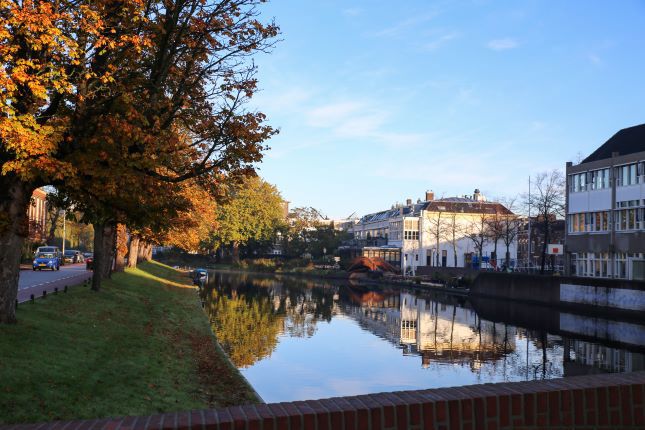&width=645)
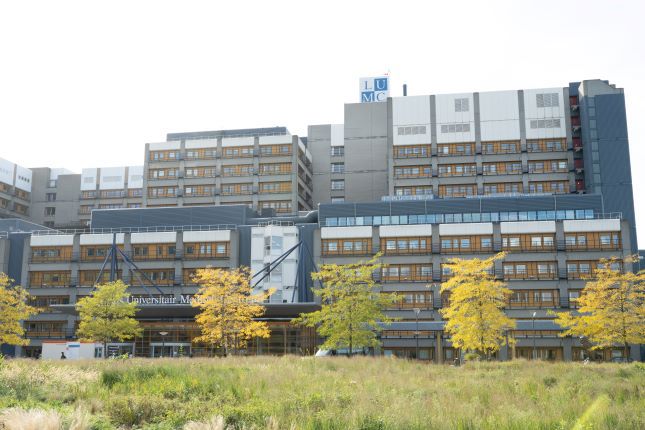&width=645)
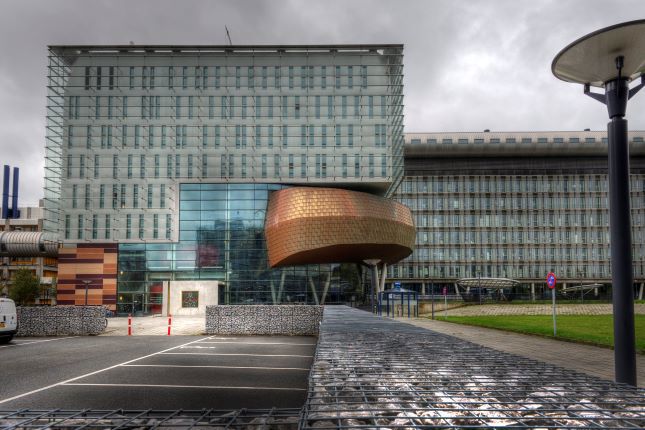&width=645)
Who should attend/Target Audience
This congress is intended for international and national (paediatric) ophthalmologists, ophthalmogeneticists, paediatricians, visual rehabilitation specialists, researchers, orthoptists, optometrists and all other specialists involved in care for paediatric patients with ocular problems.
To support young colleagues in attending the EPOS meeting, student fees are available for medical students, PhD students, residents, and candidates for the EBO subspecialty exam in strabismus and paediatric ophthalmology 2025.
Learning Objectives, CME Accreditation & Certificate of Attendance
Learning Objectives:
The goal of this meeting is to provide a comprehensive platform for presenting new research, sharing experiences, and exploring advanced knowledge in paediatric ophthalmology and related professions.
Participants will gain insights into the latest developments in paediatric ophthalmology and its subspecialties, enabling them to strengthen collaboration within their teams and networks.
Upon completion of this annual meeting, attendees will be up to date on:
- New developments in paediatric ophthalmology and allied professions.
- Standards of care for a wide range of disorders encountered in daily practice.
- Best practices for surgical and medical interventions in paediatric ophthalmology.
CME Accreditation
“The 50th Annual Meeting of the European Paediatric Ophthalmological Society, Leiden, Netherlands 09/10/2025 - 11/10/2025, has been accredited by the European Accreditation Council for Continuing Medical Education (EACCME®) with 11.5 European CME credits (ECMEC®s). Each medical specialist should claim only those hours of credit that he/she actually spent in the educational activity.”
"Through an agreement between the Union Européenne des Médecins Spécialistes and the American Medical Association, physicians may convert EACCME® credits to an equivalent number of AMA PRA Category 1 CreditsTM. Information on the process to convert EACCME® credit to AMA credit can be found at https://edhub.ama-assn.org/pages/applications."
"Live educational activities, occurring outside of Canada, recognised by the UEMS-EACCME® for ECMEC®s are deemed to be Accredited Group Learning Activities (Section 1) as defined by the Maintenance of Certification Program of the Royal College of Physicians and Surgeons of Canada.”
Information regarding the conversion of EACCME® credits
Credit will be converted based on one (1) hour of participation equaling one credit for all activities. Physicians wishing to convert EACCME® credits to AMA PRA Category 1 Credit™ will be required to access the AMA website at https://edhub.ama-assn.org/pages/applications to obtain the necessary paperwork and instructions. Physicians and other health care professionals will be required to pay a processing fee to the AMA.
For other countries, please contact the relevant national/regional accreditation authority.
EACCME® credits
Each participant can only receive the number of credits he/she is entitled to according to his/her actual participation at the event once he/she has completed the feedback form. Cf. criteria 22 of UEMS 2023.07.
Please find below the breakdown of ECMEC®s per day:
|
Date |
Credits |
|
09-10-2025 |
0.0 |
|
10-10-2025 |
6.0 |
|
11-10-2025 |
5.5 |
The EACCME® awards ECMEC®s on the basis of 0,5 ECMEC® for 30 minutes of CME with a maximum of 8 ECMEC®s per day. cf. Chapter XIII of UEMS 2023.07.
EPOS 2025 is accredited by the Dutch Accreditation System for Continuing Education of Paramedics (ADAP) for a maximum of 12 CME credit points.
In order to claim your credits, please ensure you have signed in the morning and after lunch on both conference days before entering the session room.
Certificate of Attendance
To receive a certificate of attendance, you must complete the digital evaluation form shortly after the conference.
Your total accreditation points depend on your participation. Therefore, you are required to sign in each day, both in the morning and in the afternoon.
Venue, Travel & Hotel accommodation
The EPOS Annual Meeting 2025 will be held at the Leiden University Medical Center (LUMC) in the Netherlands. The spacious Burumazaal, located in the building with its distinctive golden dome—particularly fitting for this meeting—can host more than 400 participants. It features excellent audiovisual facilities and microphones at every seat for easy interaction.

LUMC, Burumazaal (building 3)
Hippocratespad 21
Leiden, the Netherlands
Accessibily and parking
By plane
Schiphol Amsterdam Airport is less than twenty minutes away. Upon arrival at Schiphol Amsterdam Airport, you can either travel by taxi to the LUMC or take the train from Schiphol to Leiden Central Station.
The train, is the quickest and most convenient way to travel to Leiden. In Schiphol Plaza (the arrival hall) you will find several (yellow) train ticket machines but also ticket desks. The train station itself is situated directly underneath the Schiphol Plaza. An one-way ticket will cost you around € 7 (you can pay either cash or by bankcard). You can also buy your ticket in advance on this website. After arriving at Leiden Central Station, you can leave train station at the backside and the hospital will be on your left hand side.
The registered taxi companies at Schiphol will be happy to take you to any destination in the Netherlands. Follow the signs and floor stickers from the terminal to the official taxi rank in front of Schiphol Plaza. From here, the fares are displayed on their meter. That way, you will never pay too much. In addition, you can make a contactless payment in any taxi. The drivers accept credit cards, are not allowed to refuse rides and will give you a printed receipt.
Attention: please avoid all unsolicited rides from taxi touts.
For more information and directions, please click here.
For hotel accommodation, kindly visit the dedicated Visit Leiden website.
Gala Dinner
This year EPOS, formerly EPOG, celebrates its 50th meeting anniversary. A perfect reason to give a golden touch to this classic event and call it the Golden Jubilee Gala Dinner.
Traditionally, participants of the EPOS-meeting join for dinner on Friday evening. These dinners are famous for their low profile and kindness where young and old, starter or old retainer, mingle in beautiful surroundings. Don’t miss out this unique opportunity to reconnect with old friends, make new ones, foster collaborations, expand your network, and engage in stimulating conversations with your international peers.
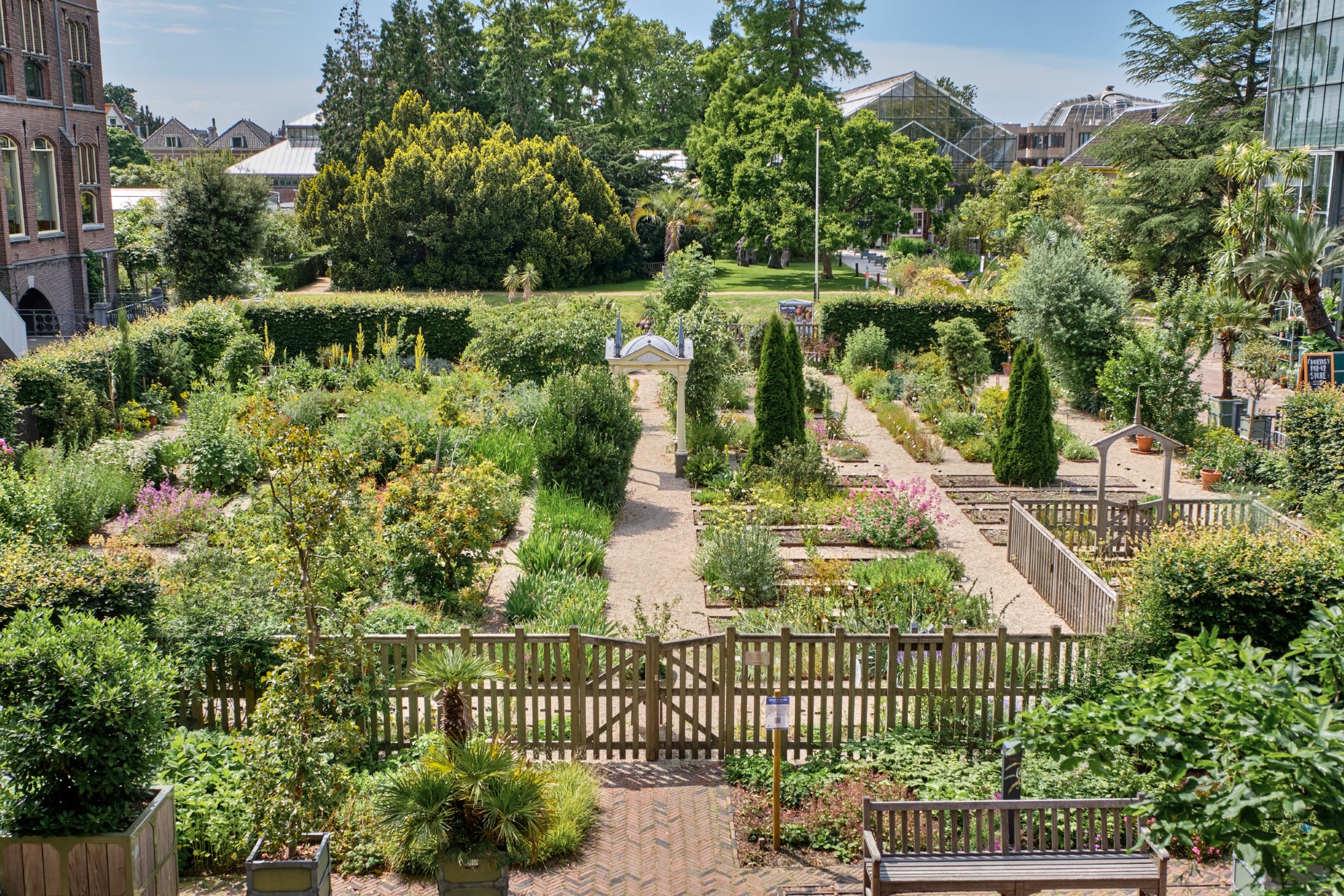
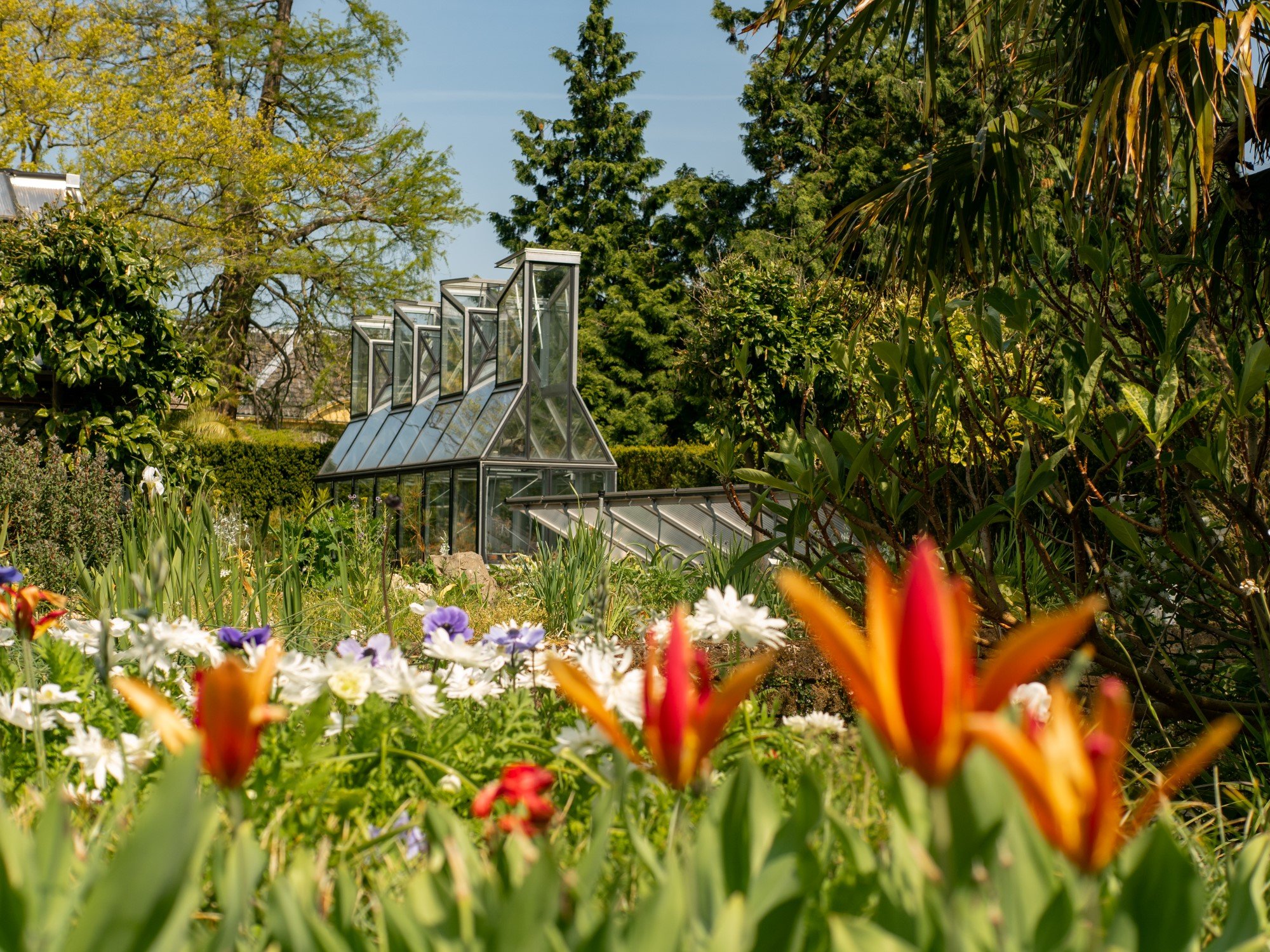
The Golden Jubilee Gala Dinner will be hosted at the Orangery of the Hortus Botanicus Leiden, the oldest botanical garden in the Netherlands and one of the oldest in Europe. Established in 1590 and expanded over the centuries, the Hortus is the green heart of Leiden. You will find peace and inspiration here. Carolus Clusius cultivated Europe’s first large tulip collections here, while Philipp Franz von Siebold introduced around 700 previously unknown plants from Japan and China. Today, this green treasure trove houses rare plants from Southeast and East Asia, Southern Europe, and South Africa, some of which are nearly extinct in the wild.
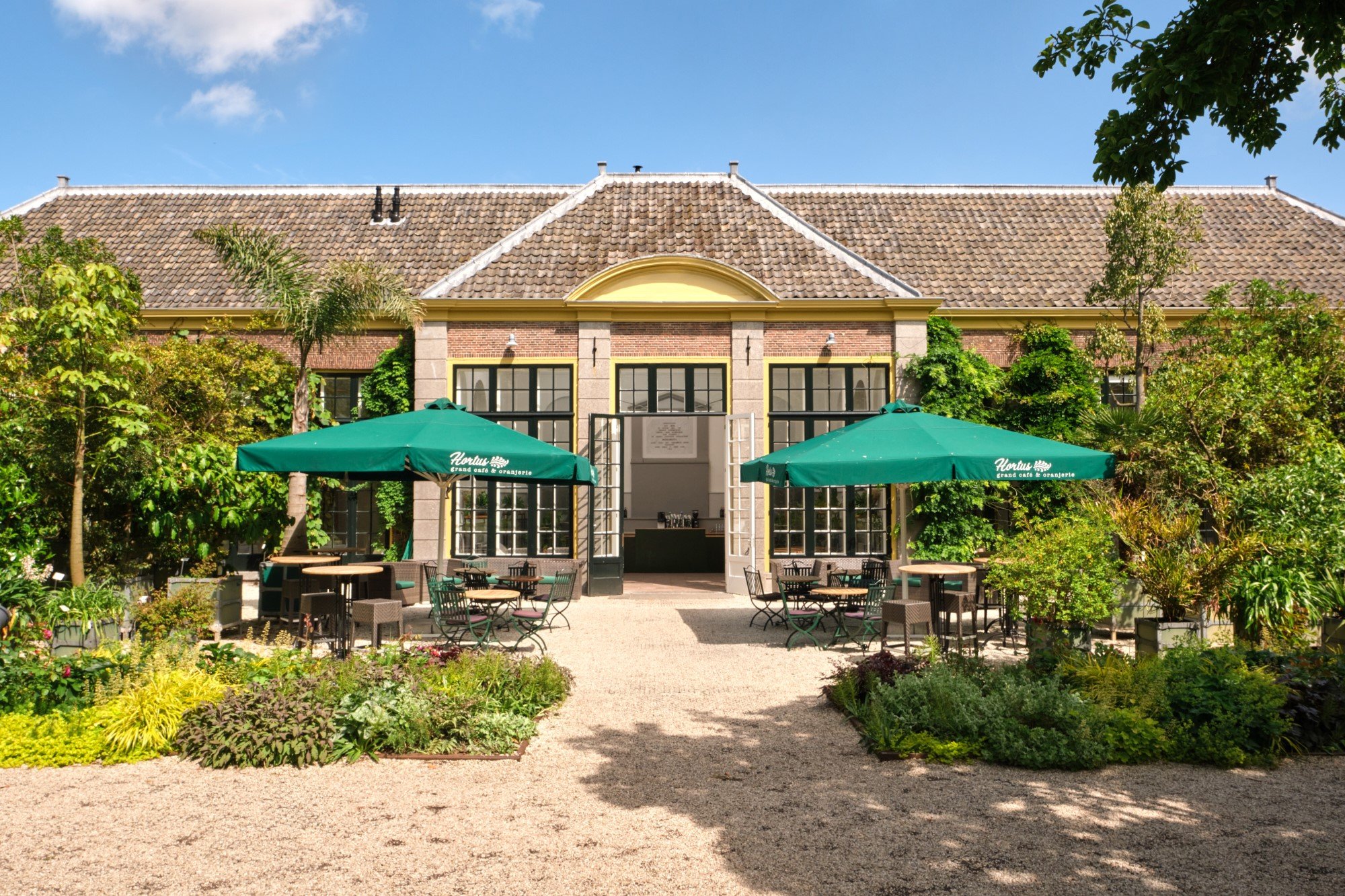
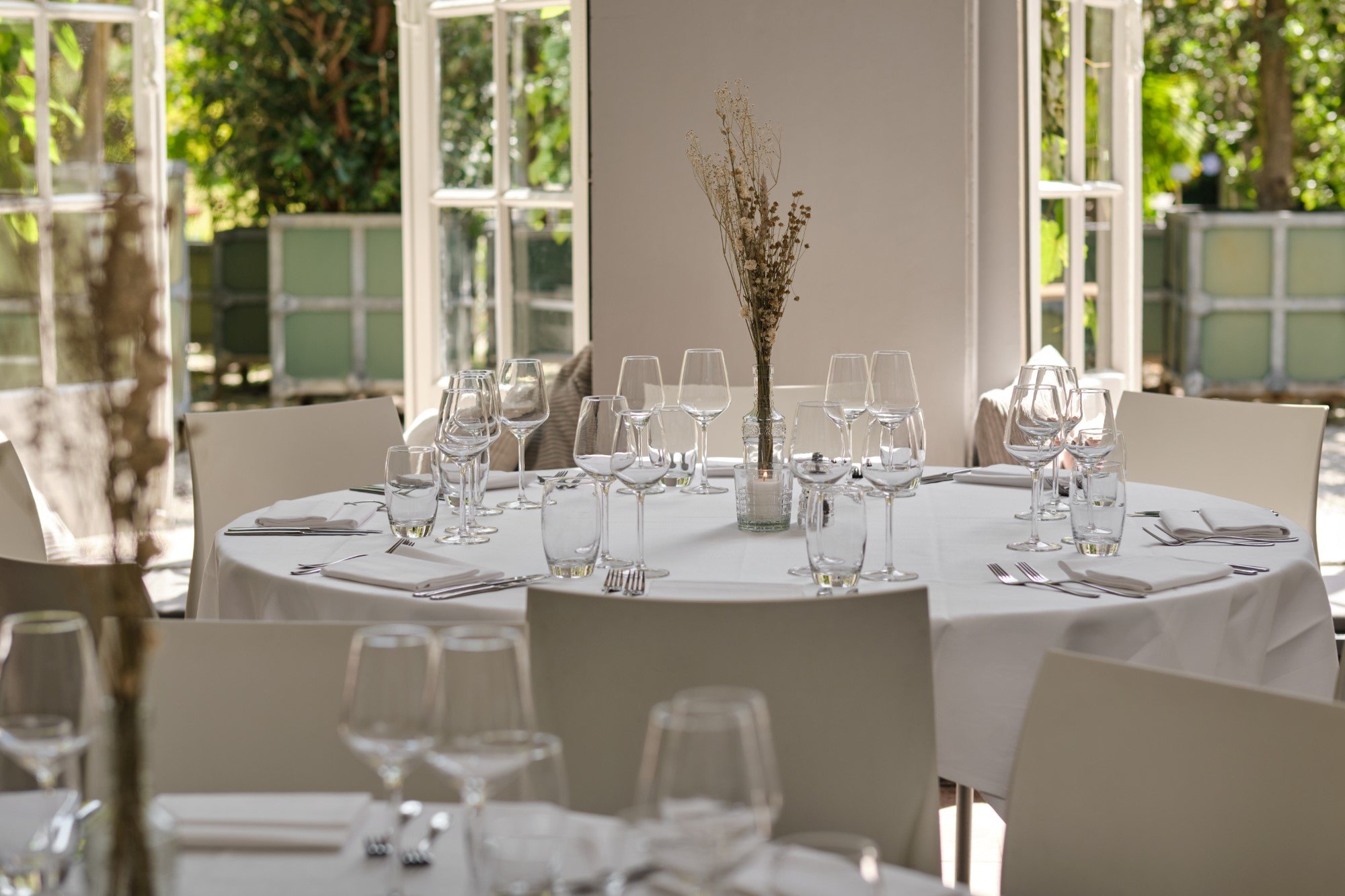
The Golden Jubilee Gala Dinner is optional and requires registration. It can only be booked if you are registered for the congress. If so, you may also book additional seats for your accompanying guests. As the number of seats is limited, unpaid bookings will be automatically removed on an (almost) daily basis.
Dietary preferences or restrictions will be collected during registration, but can also be shared here.
Dress code: informal, festive, with a golden touch.
Venue: Orangery of the Hortus Botanicus Leiden, Rapenburg 73, Leiden, the Netherlands.
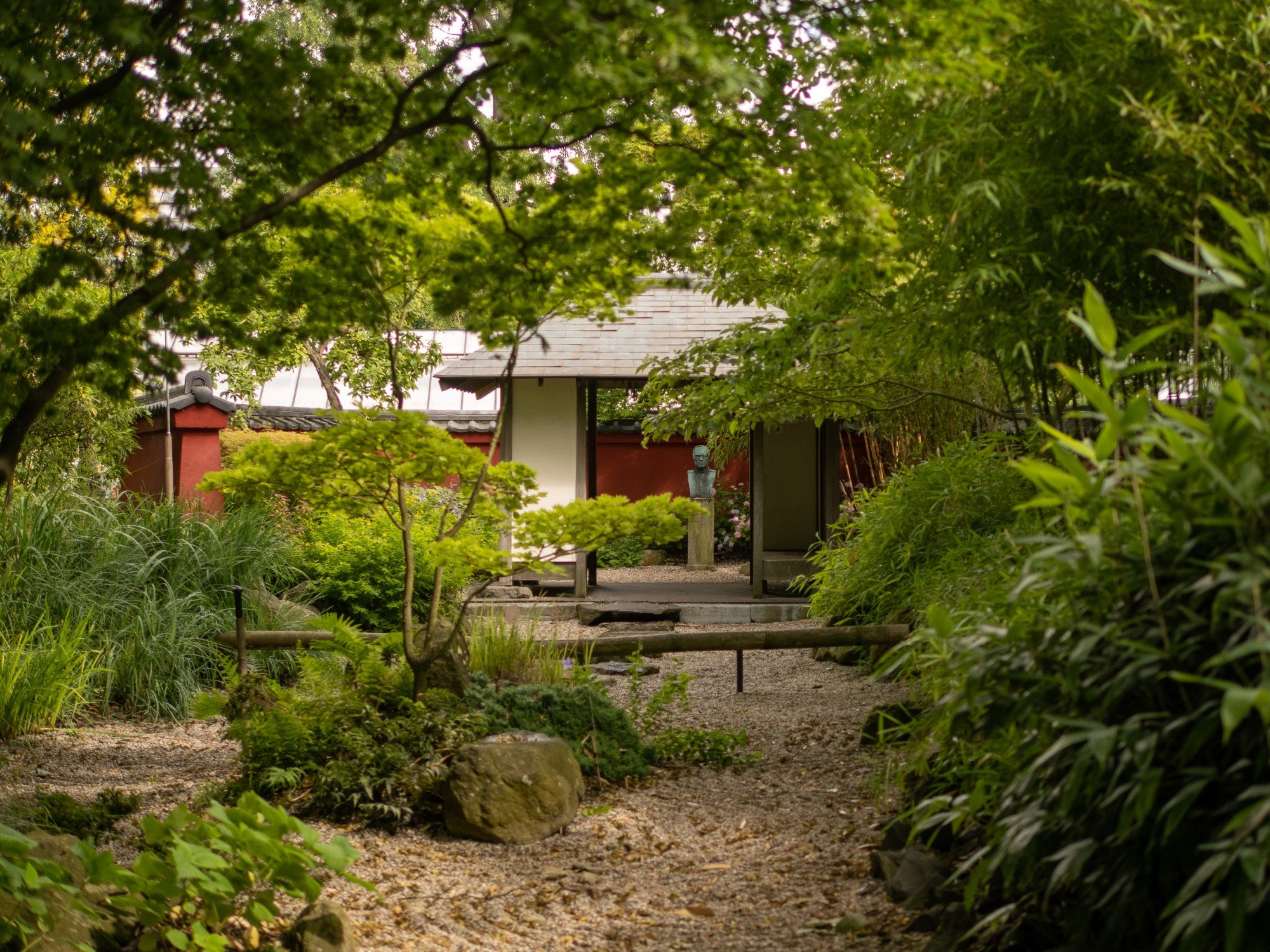
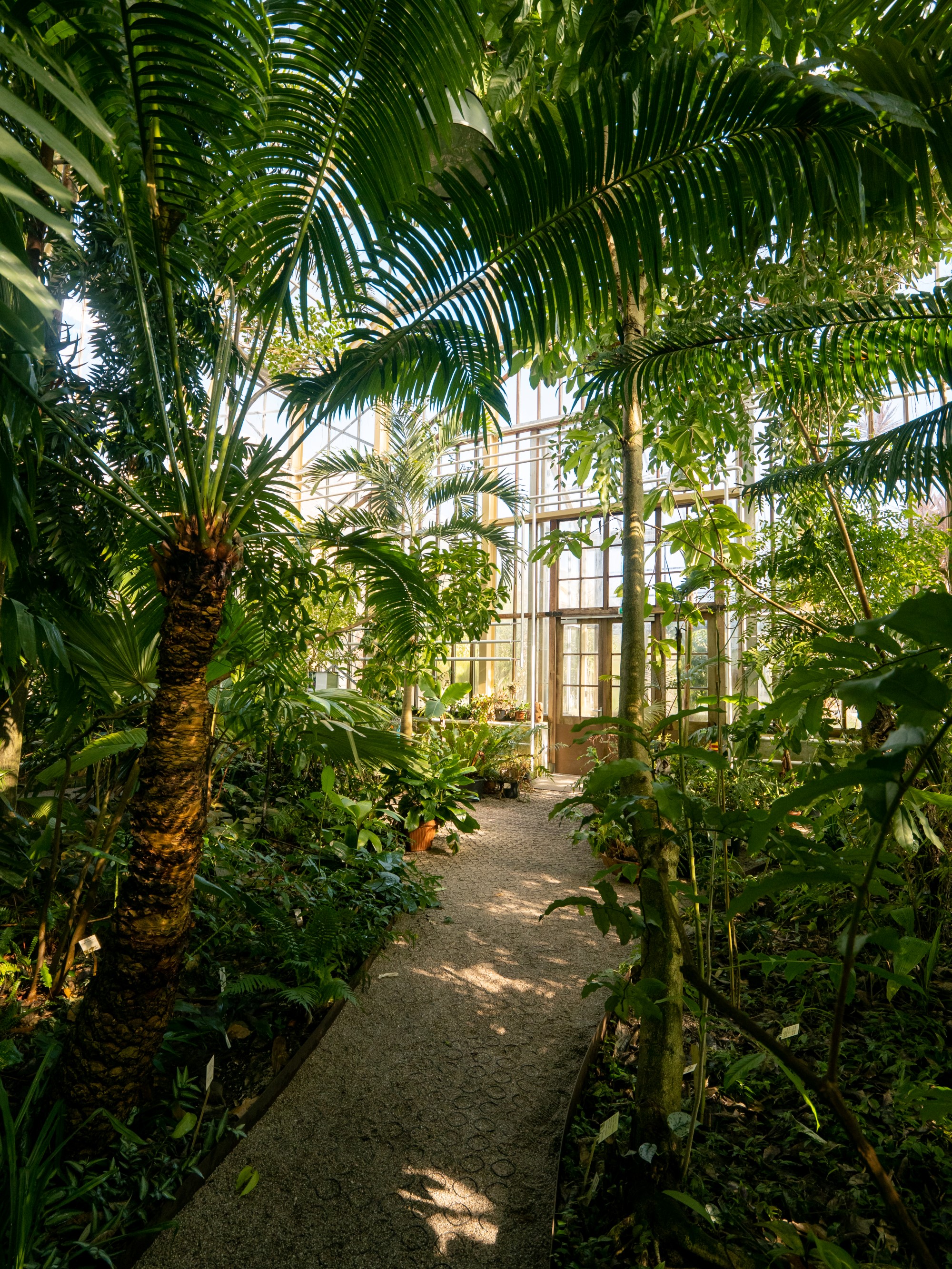
Abstract Submission
Submission Guidelines & Deadlines
The Conference Organising Committee invites you to actively participate in this conference. We look forward to receiving your abstracts for consideration and inclusion in the program for oral and poster presentations.
Abstract submission is only possible online—submissions via fax or mail will not be accepted.
Please carefully follow the instructions and guidelines before submitting your abstract. You can submit your abstract via the abstract submission portal to contribute to the EPOS Annual Meeting 2025.
The submission deadlines are:
Abstract submission open Monday, 17 February 2025
Abstract submission deadline Thursday, 1 May 2025 (23:59 CET)
Abstract notification Monday, 30 June 2025
Topics
- Team- and network with the geneticist (metabolic, genetic, syndromes, retina)
- Team- and network for children with craniofacial or orbital diseases
- Team- and network with neurology (paediatric brain tumors)
- Team- and network for allergic and inflammatory disorders (allergology, immunology and rheumatology)
- Team- and network with neonatology & panel discussion 'The best way to treat and follow up on ROP'
- Team- and network in rehabilitation for the visually impaired
- Paediatric ophthalmology never works Eye-lone (teamwork with other subspecialists in ophthalmology - surgery)
- Team- and network for diagnostics (from imaging to diagnosis)
Fees & Registration
REGISTRATION IS CLOSED

Registration Deadlines
Early bird registration fee: Friday, 11 July 2025, 23:59 CEST
Regular registration fee: Thursday, 28 August 2025, 23:59 CEST
Late/on-site fee: from Friday, 29 August 2025
Registration fees are exempt from Dutch VAT.
(1) Student rate is available for Medical students, PhD-students and clinicians in training during the 2025-2026 academic year. If you register as a student, please upload the proof of your current status (2024-2025 academic year) on the conference management platform (this can be a student card, a registration certificate, or a letter from your supervisor or head of department), Be ready also to present an updated (2025-2026 academic year) proof of status when registering on-site.
(2) Orthoptist & Other Vision Specialists. Please provide your KP-number or a letter from your supervisor or head of Department.
(3) Please provide your membership number when creating your account on our conference management platform. The membership will be verified; if you are not a member, we will have to change your registration fee to the one applying to your status.
INCLUDED IN THE REGISTRATION FEE
+ Access to all meeting sessions
+ Conference programme and materials
+ Coffee breaks and lunches
+ Welcome reception on Thursday, 9 October 2025 from 17:00 – 20:00 hrs.
Social programme rates:
Letter of invitation
A letter of invitation can be requested during the registration process. Such an invitation is intended to help potential participants raise travel funds or obtain a visa. It is not a commitment on the part of the congress to provide any financial support.
Registration Cancellation Policy
Unpaid registrations will be canceled at the end of the rate availability period and automatically adjusted to the new applicable rate without further notice.
Cancellation requests will be accepted until Friday, 1 August 2025. A €50 cancellation fee will be retained, and the remaining amount will be refunded to the card used for the initial payment.
To request a cancellation, please contact epos2025@lumc.nl.
Contact
For any questions regarding registration or the congress in general, please contact us at epos2025@lumc.nl.